Call for Applicants! – iDiscover Sri Lanka Field School

Sri Lanka 2024 Field School - now recruiting 10 Dutch students to take part in a unique 2-week international and intercultural spring camp!
- Are you keen to improve your skills in digital storytelling: videography, photography, illustration or creative writing?
- Do you want to explore the shared Dutch colonial past from a contemporary perspective?
- Do you want to make a positive impact on the local tourism sector in Sri Lanka?
In this 2-week international field school, you'll work hand-in-hand with local students in Sri Lanka to dive deep into the hidden [hi]stories of the island’s coastal cities and co-create online multimedia content that matters!
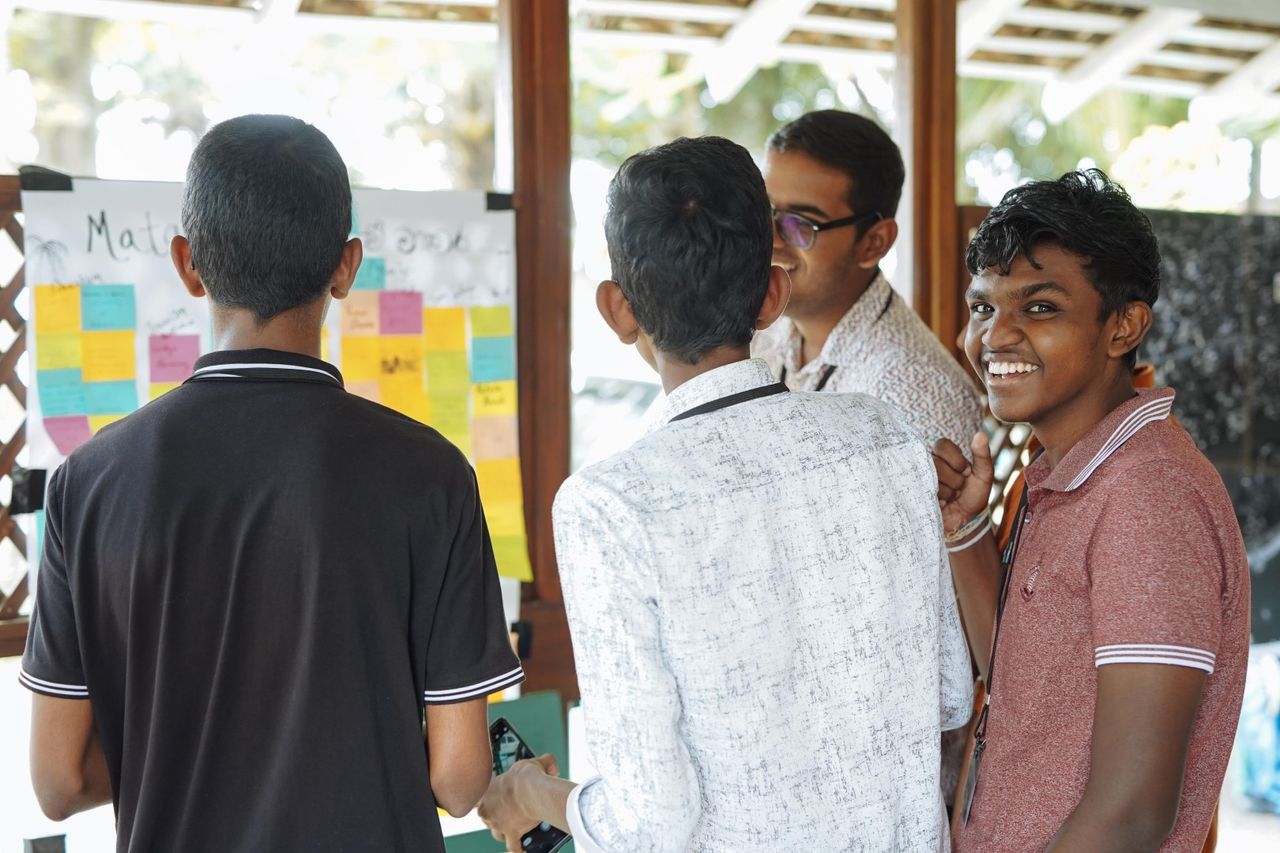
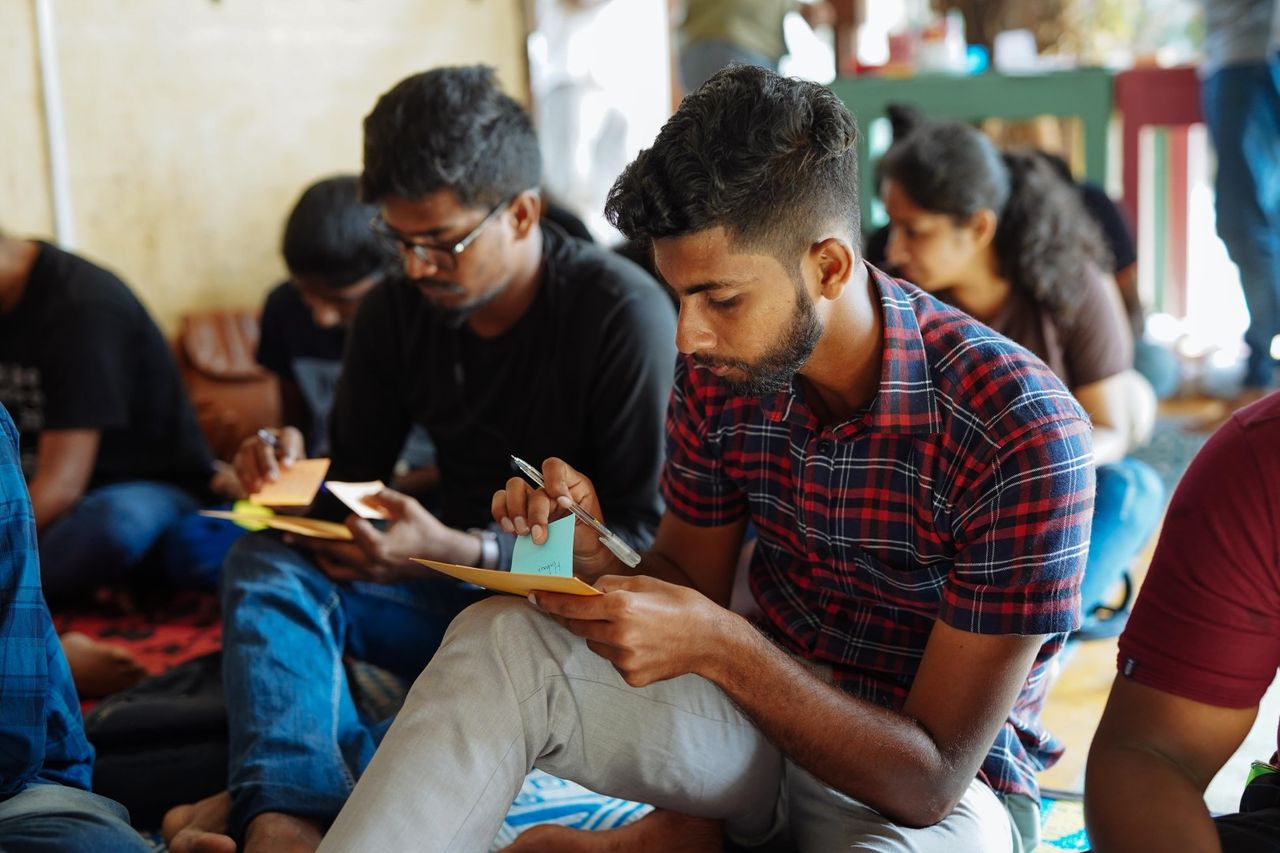
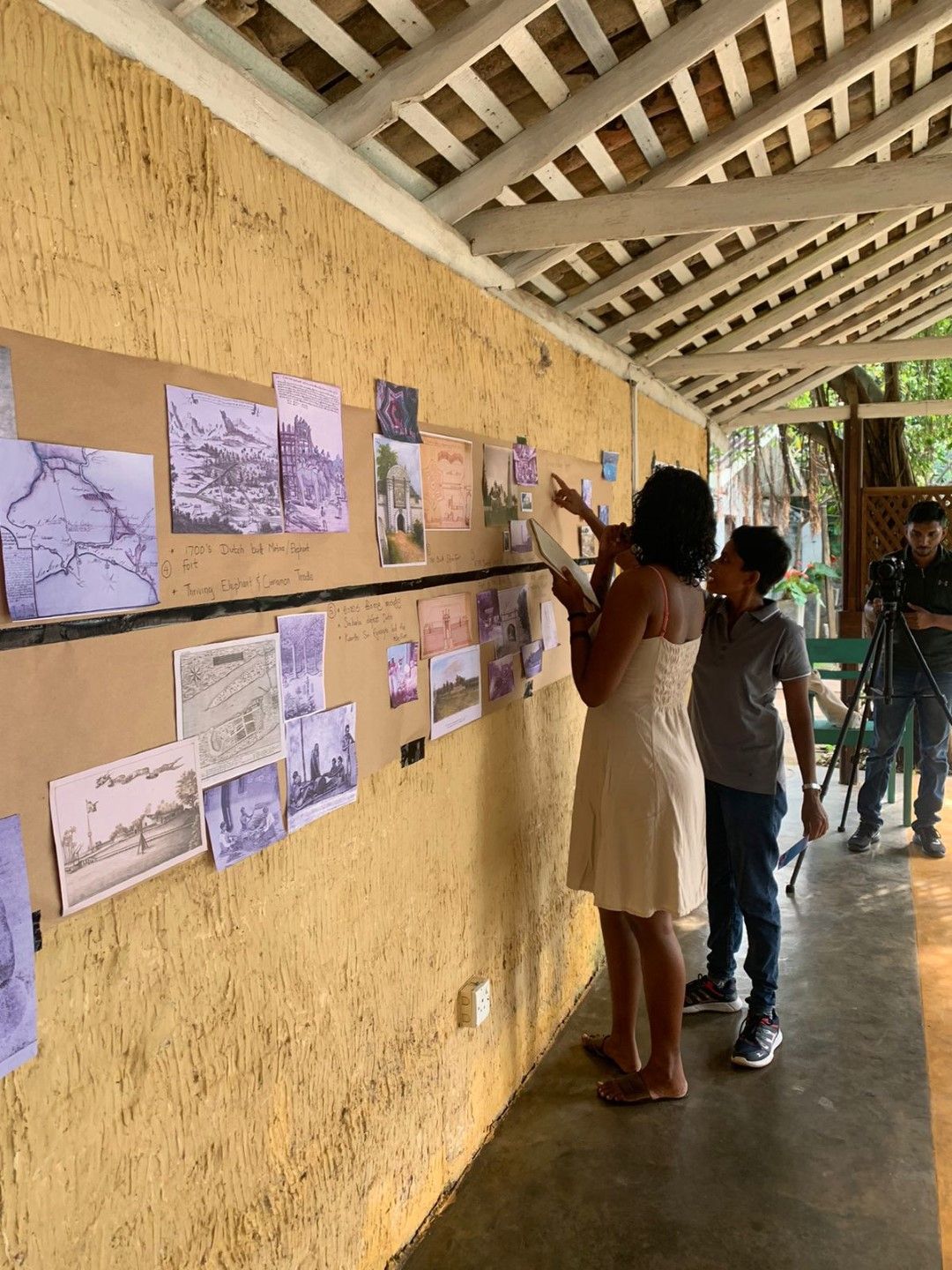
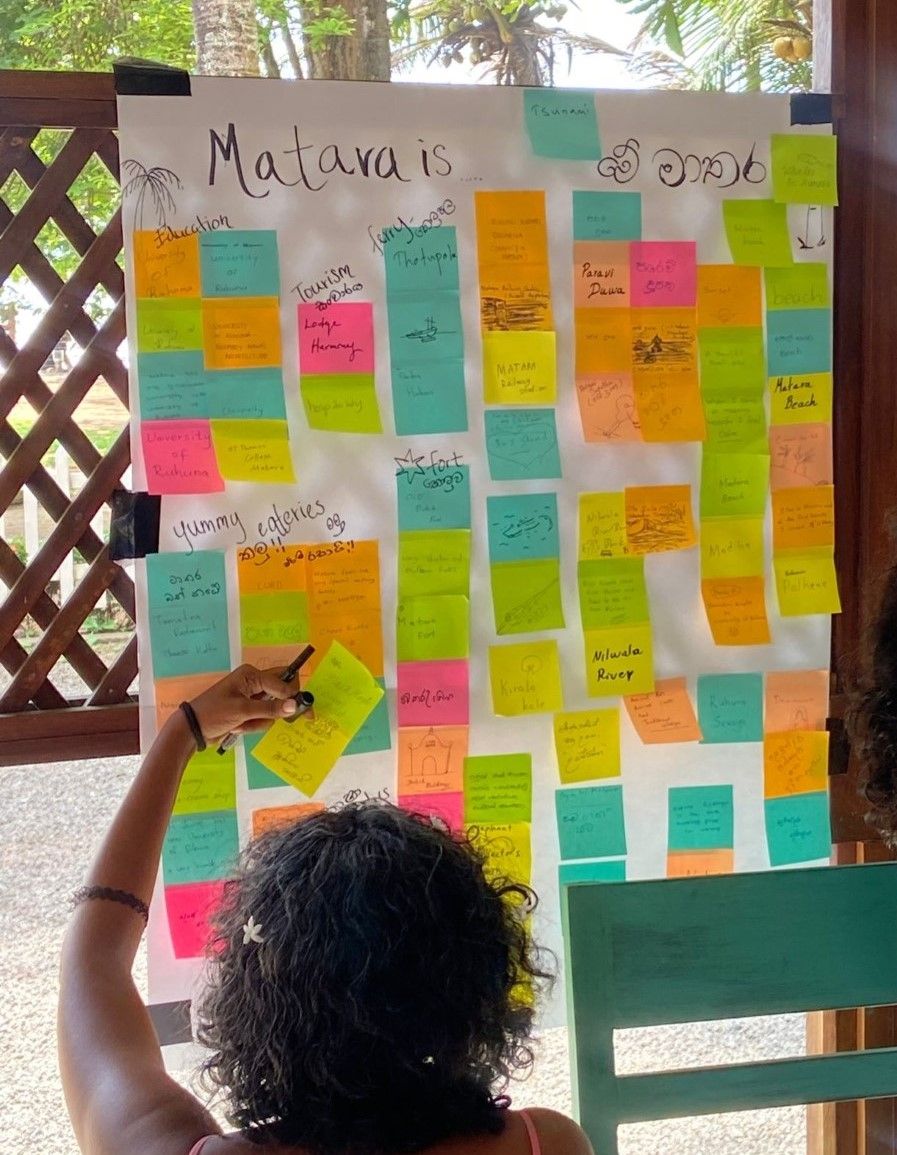
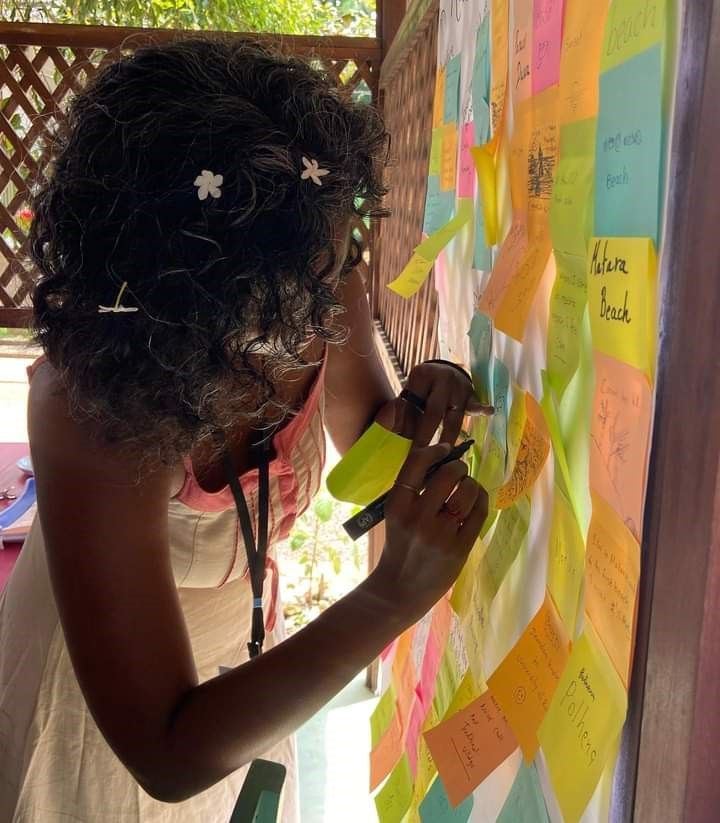
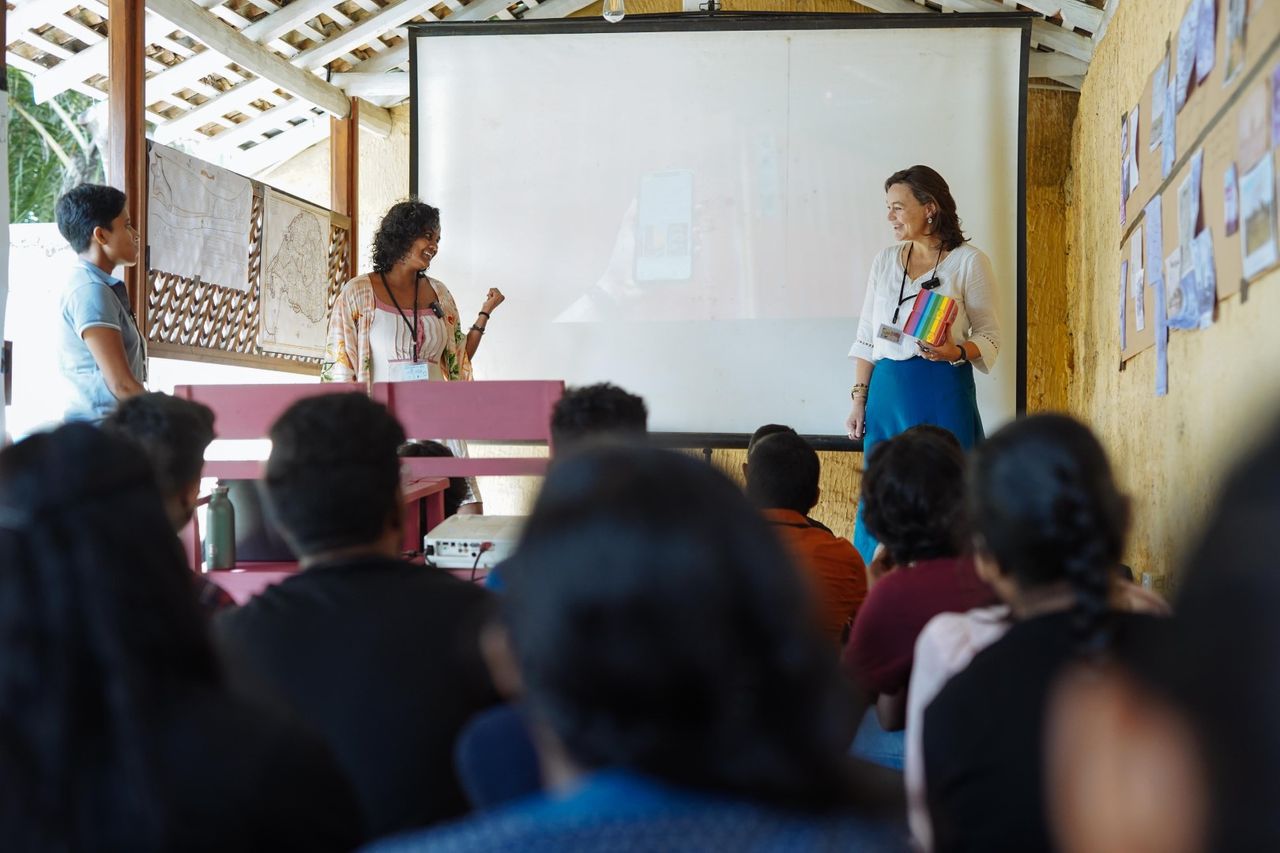
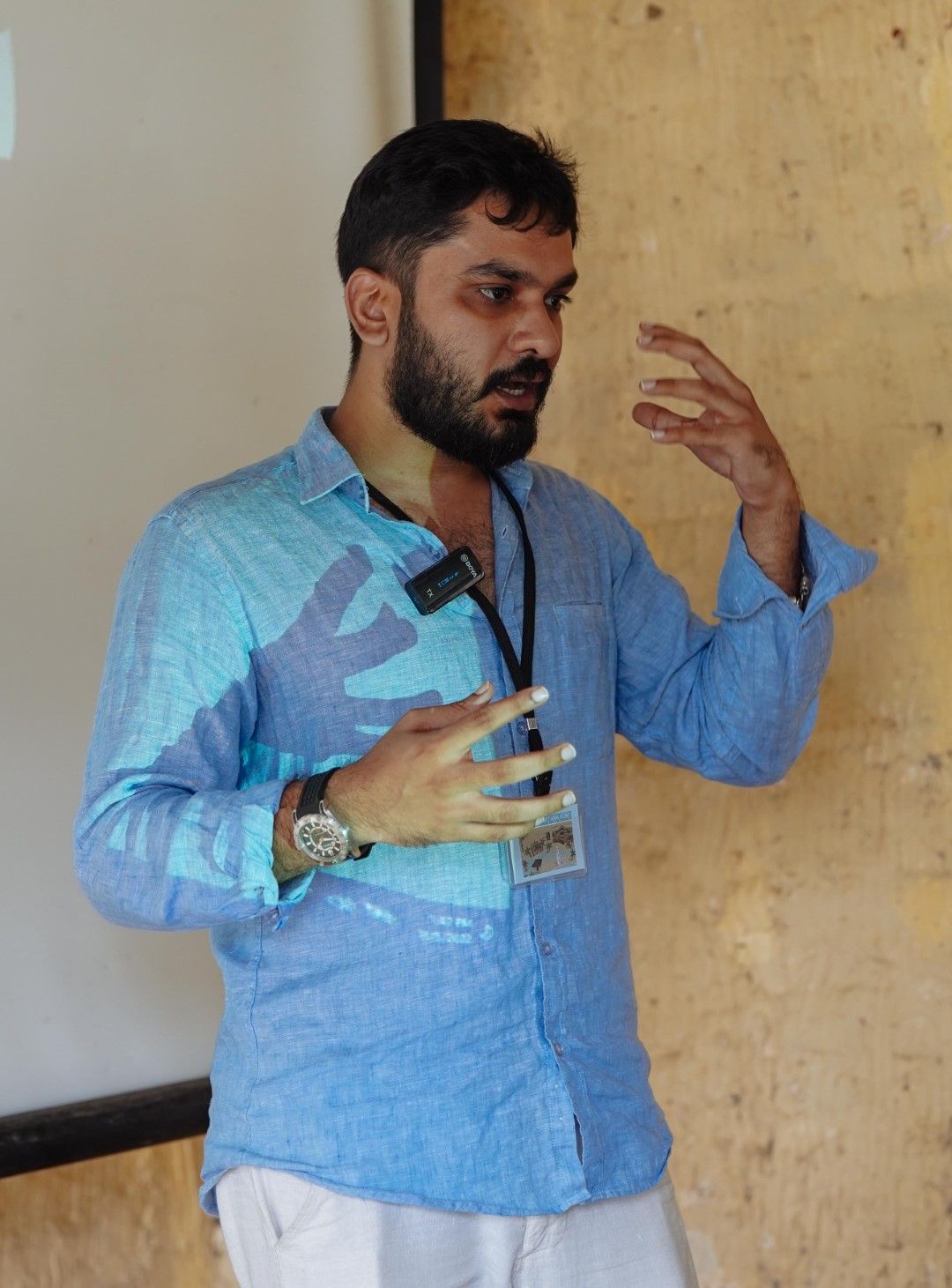
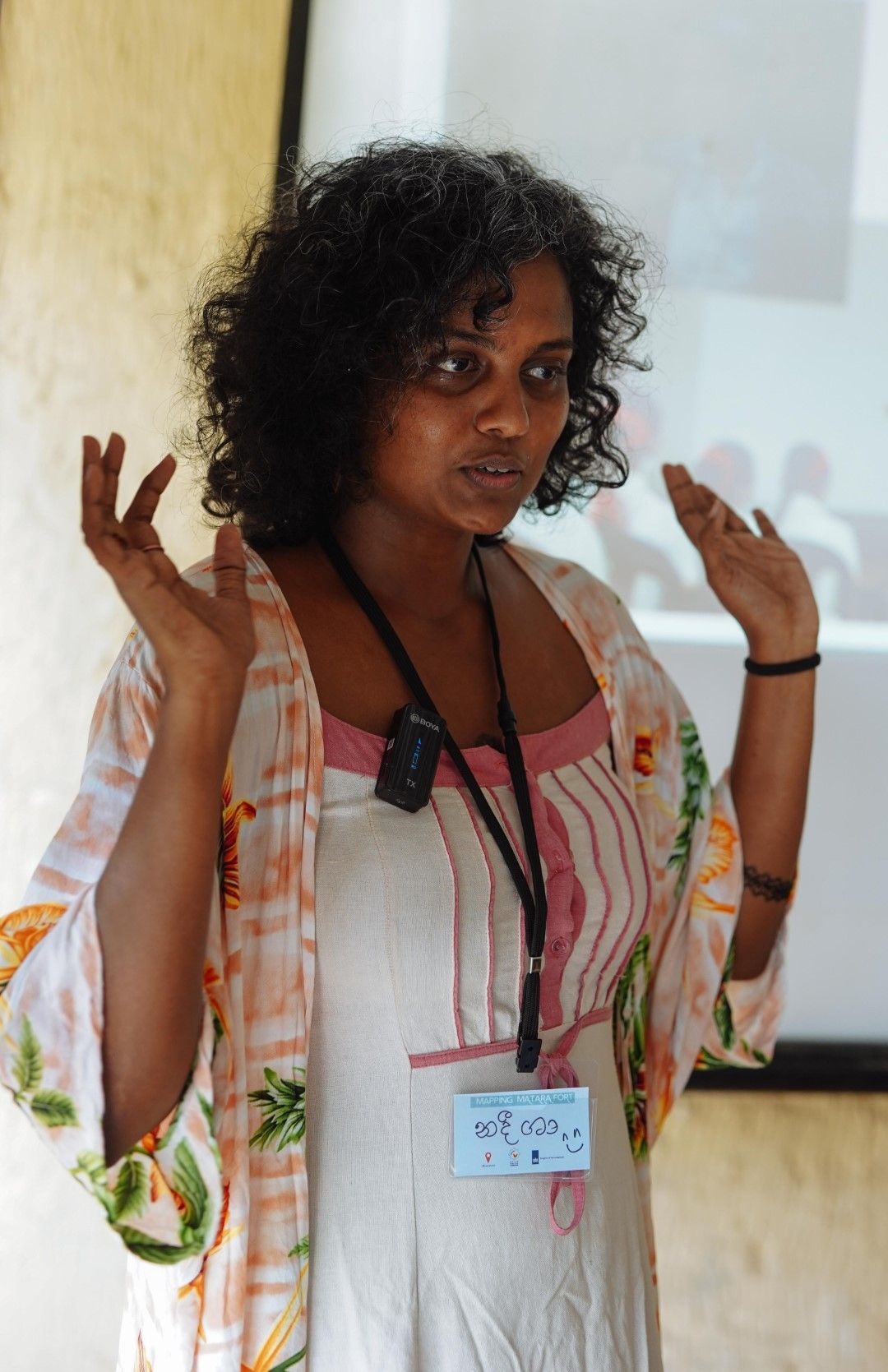
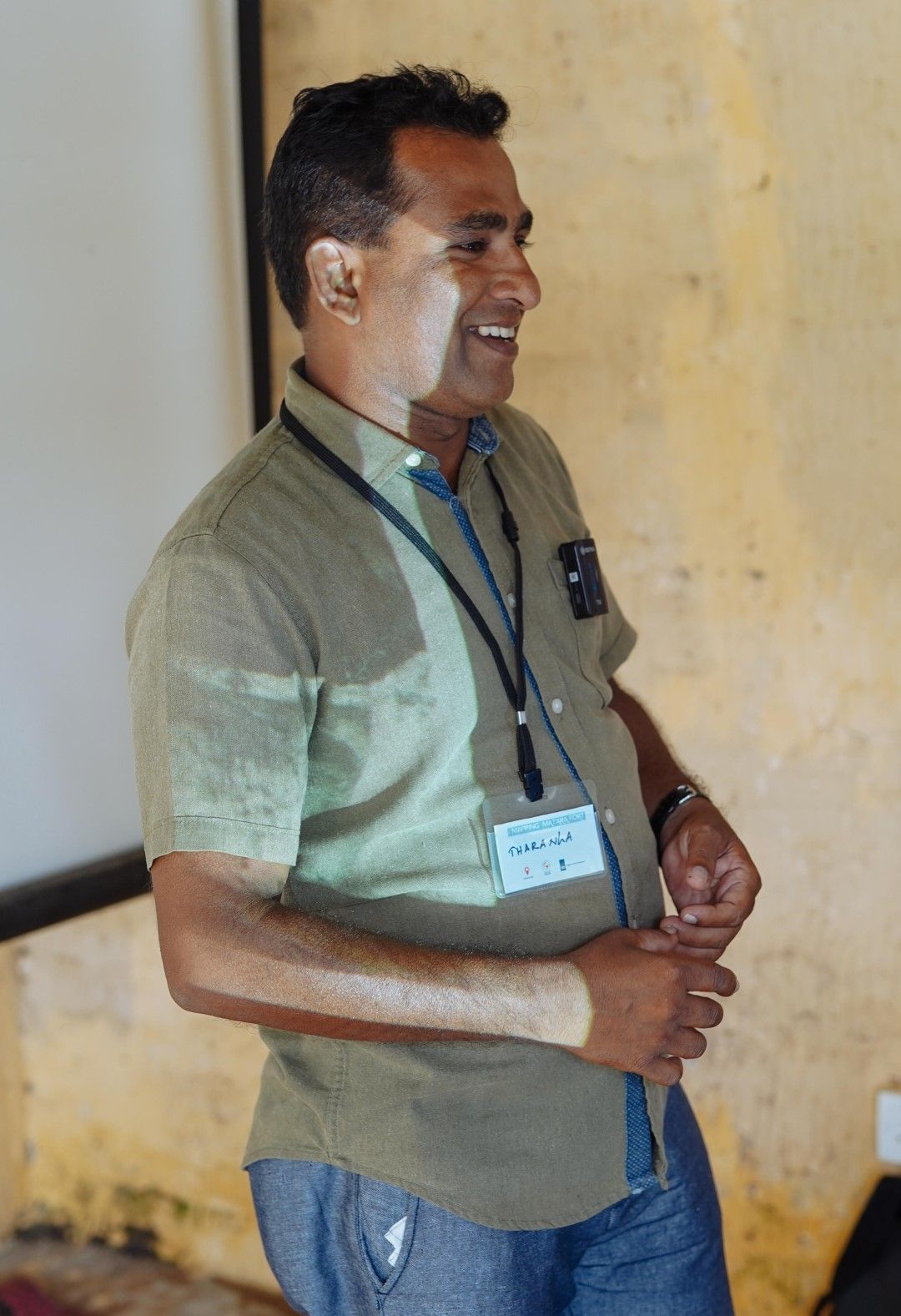
Mapping Sri Lanka's coastal cities
Sri Lanka, also known as he island of serendipity, is steeped in culture and blessed with incredible natural scenery. No wonder it is fast-growing as a travel hotspot in Asia. The much-visited UNESCO-listed Galle Fort on the South Coast is a gem of a town, an exotic old trading port with Dutch-colonial buildings, ancient mosques and churches and grand mansions. What few people know is that there are many more old forts dotted along the coast. Sri Lanka’s coastline is a treasure trove with a rich history that goes a long way back. The island used to be a major trading hub that brought Portuguese, British, Arabs and Dutch to its shores, all leaving their footprint behind.

iDiscover is on a mission to explore the hidden [hi]stories in Sri Lanka’s coastal heritage towns with support from the Netherlands Embassy in Colombo. In each city, we invite groups of talented and creative youth to walk the streets, map places that matter to the local community and document the stories behind these places. The students speak to local people, absorb places and capture the essence of the coastal towns in search of history, mystery and heritage. They unravel historical layers, find hidden gems and trace unknown elements. Together, they create new maps of old places and curate digital story walks, to give a fresh and fun perspective on ancient traditions and established narratives.


he digital city walks and illustrated neighbourhood maps are more than just a cool product. The field school uses them as stepping stones to discuss the relevance of local heritage and shared colonial history and how it impacts cultural identity and diversity in the here and now. In the past few years, we ran field schools in Colombo, Galle, Matara and Trincomalee. Collectively, we documented more than 400 cultural assets, creating more than 20 story walks across the four cities.
Does this sound interesting to you? Consider this your invite to come along!
In spring 2024, we open up the Sri Lanka field school to international students for the first time. We are now calling for applicants from Dutch universities & institutes!
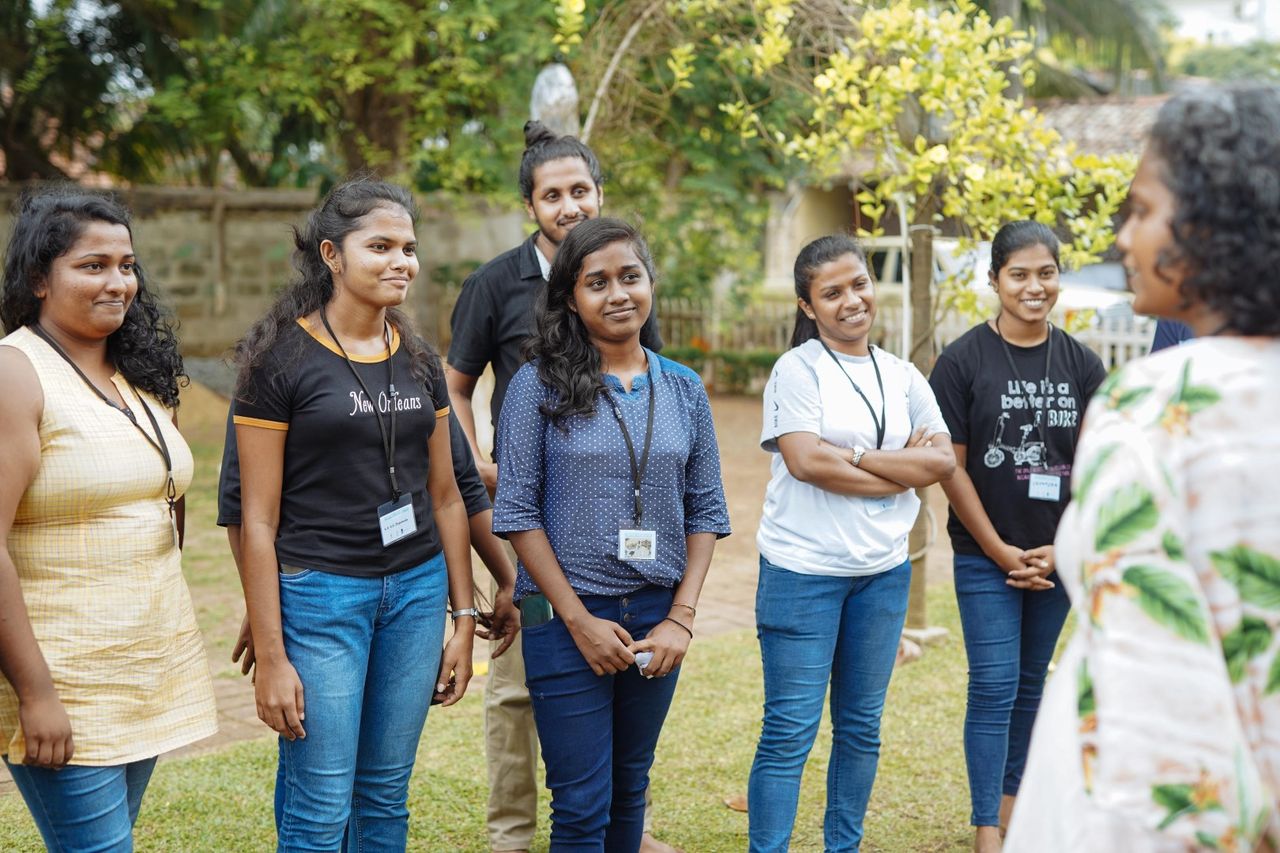
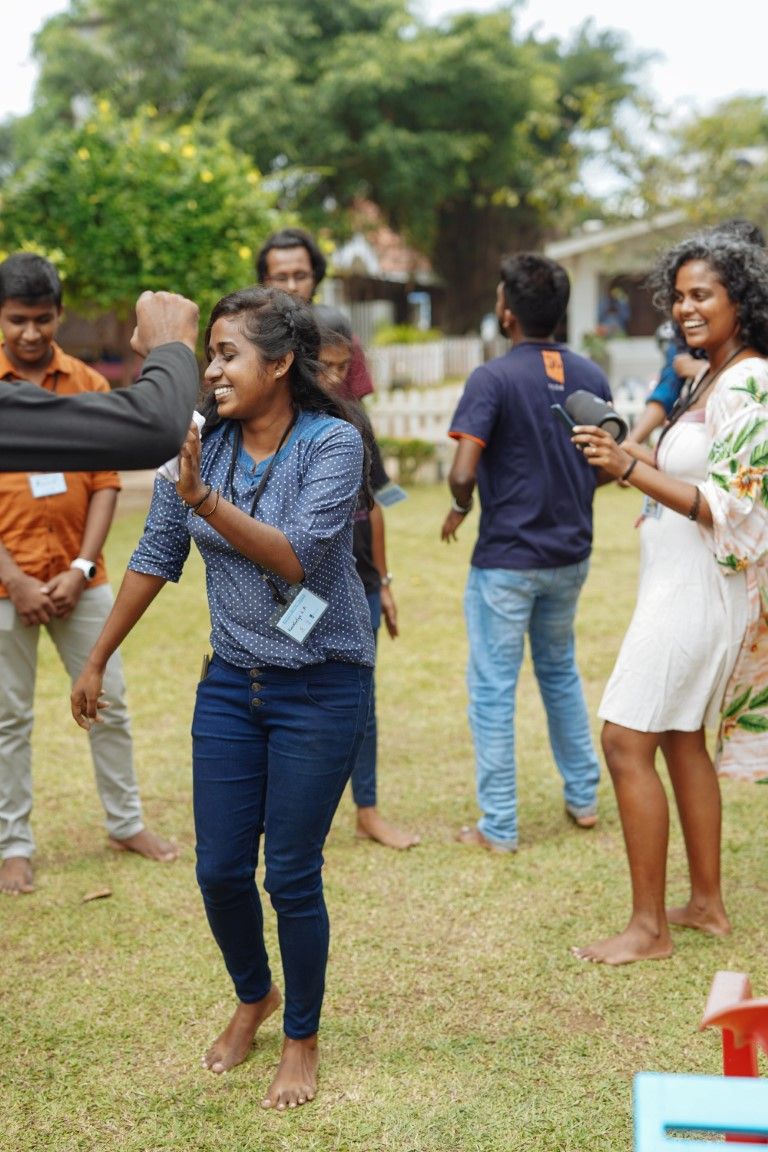
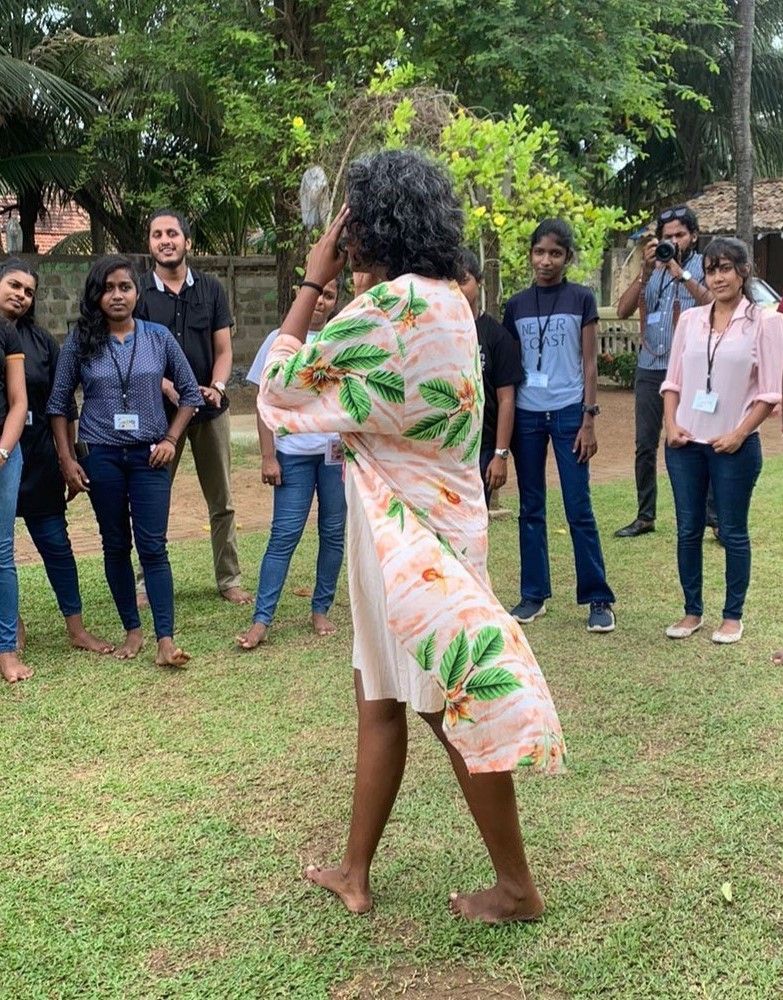
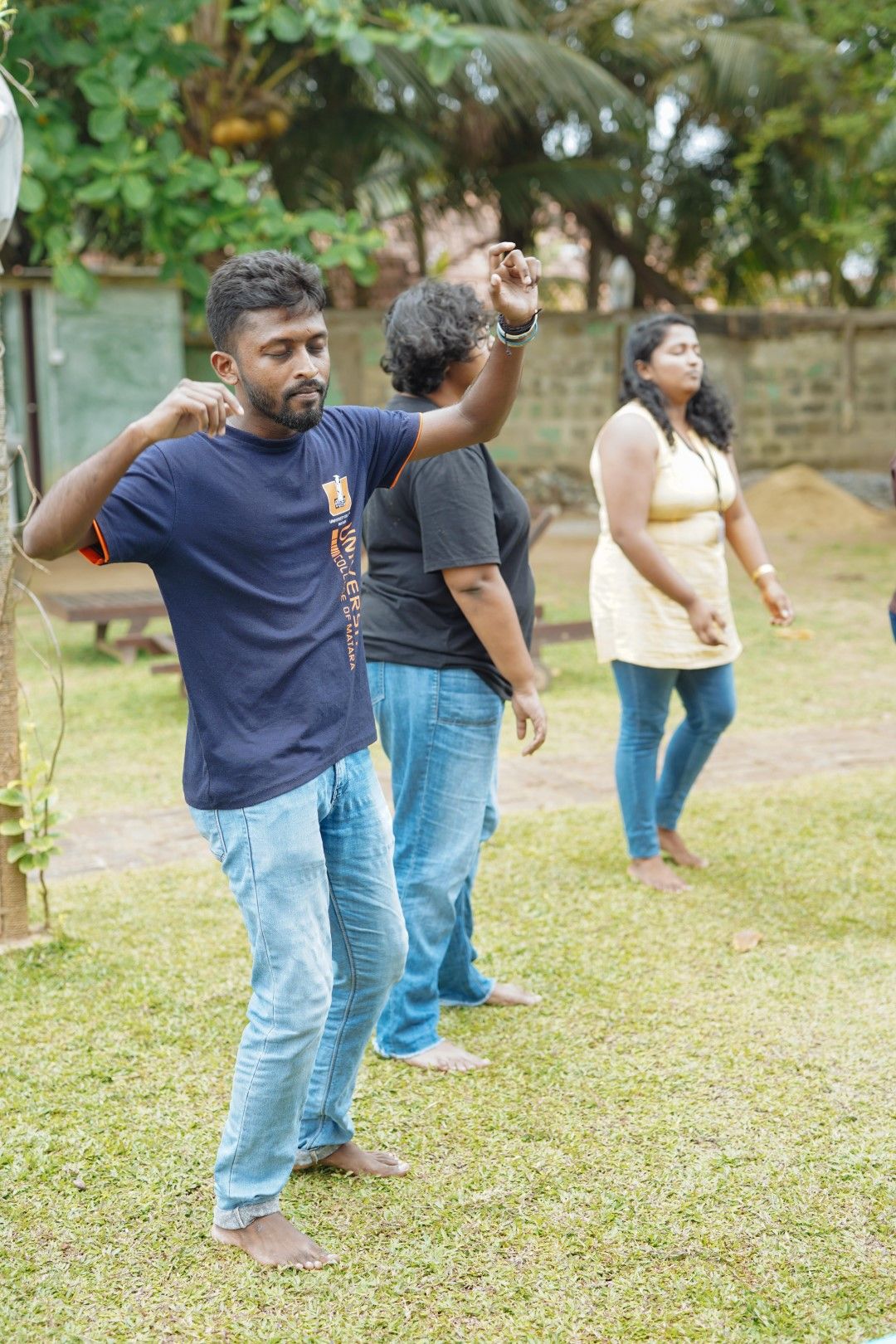
This was a life-changing experience that fosters camaraderie, creativity and compassion.
Why choose the iDiscover field school?
Travelling is a great way to soak up a new culture, broaden your knowledge and gain new perspectives. However, full immersion into a new culture leaves an even more profound imprint, especially in a country that shares a colonial past with the Netherlands. We present an intensive 2-week programme that offers a unique intercultural learning opportunity in a living heritage site. This experience is all about giving and taking, contributing and gaining, laughing and learning. You become part of our mission to put Sri Lanka’s coastal heritage cities on the map while you get to engage in Sri Lankan culture through the lens of locals, work hand in hand with local students and learn new skills at the same time.
Participants are challenged to explore common narratives from a different cultural angle and are confronted with the dynamics of heritage conservation in a developing country.
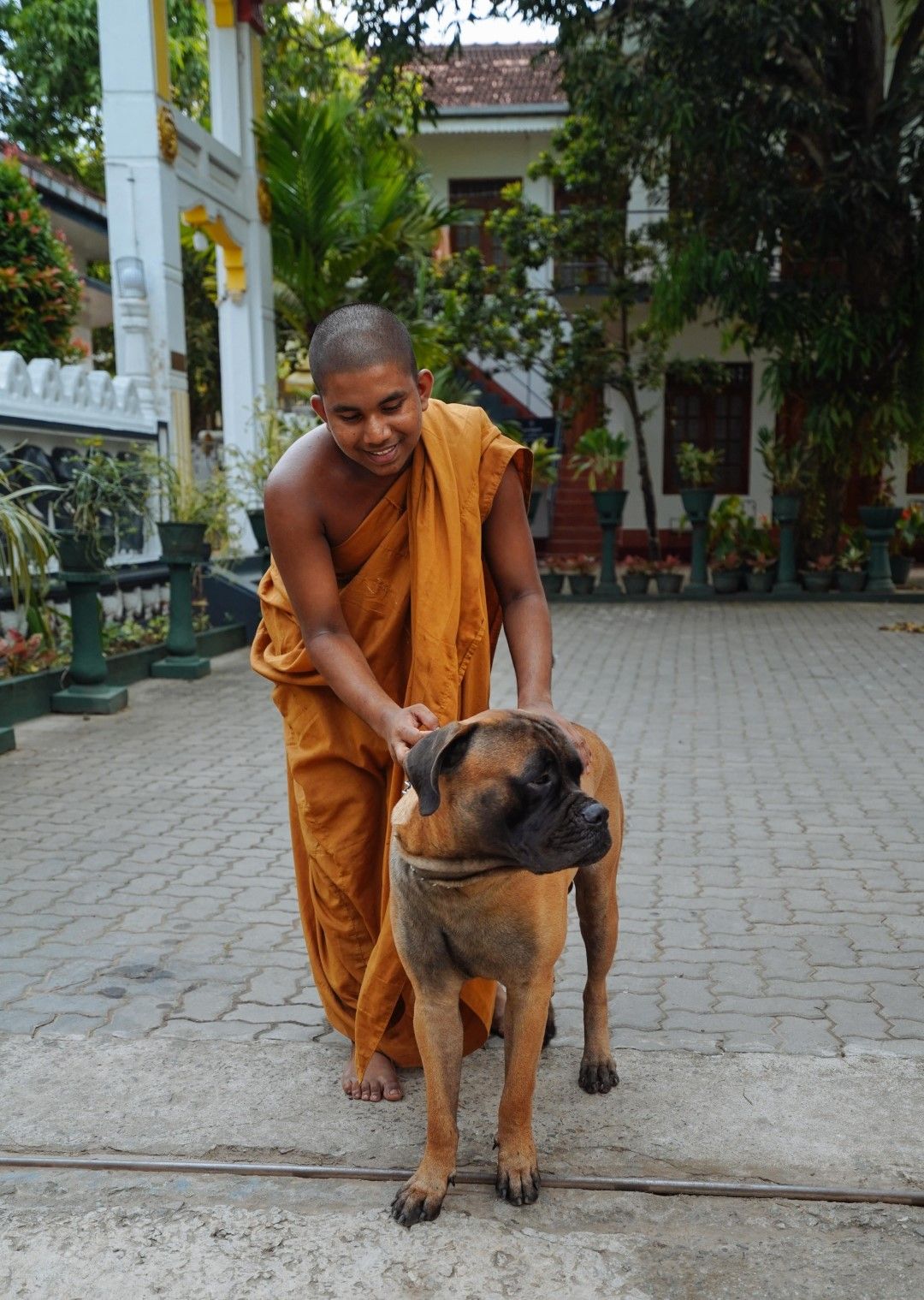
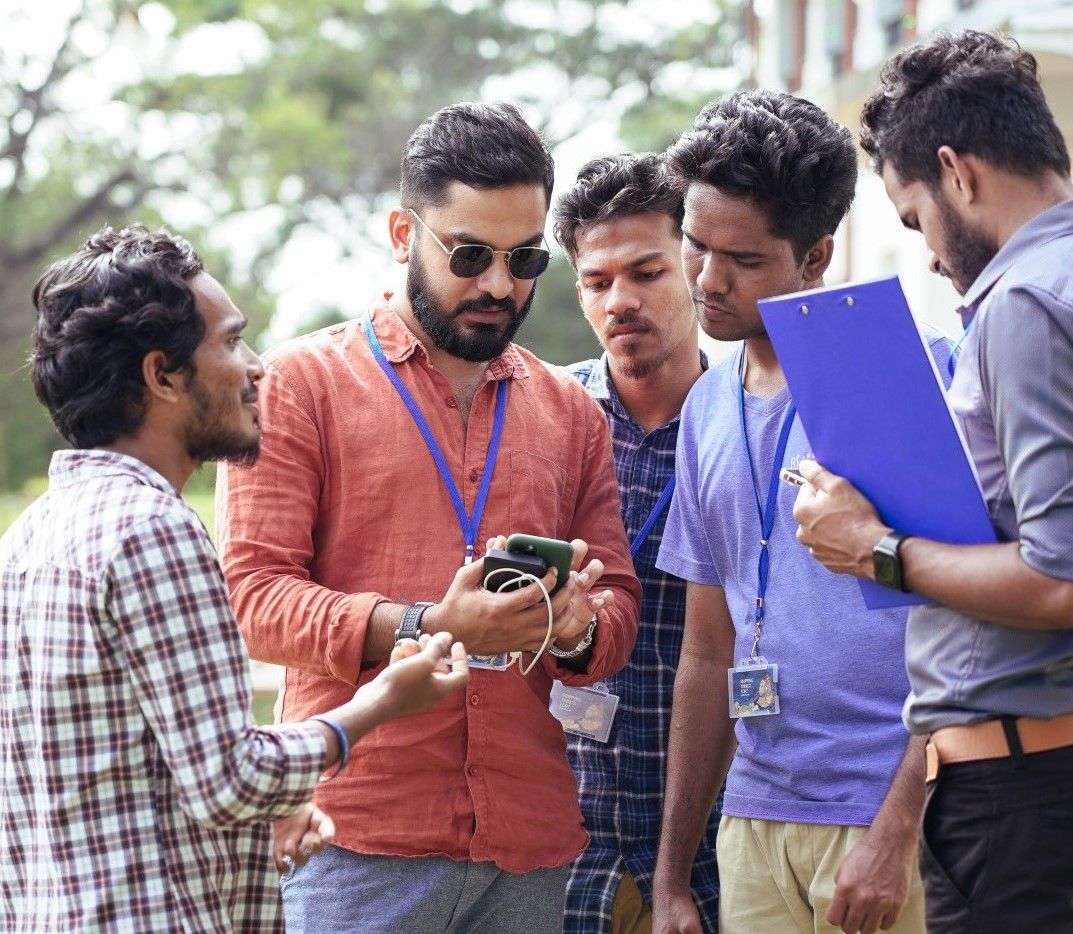
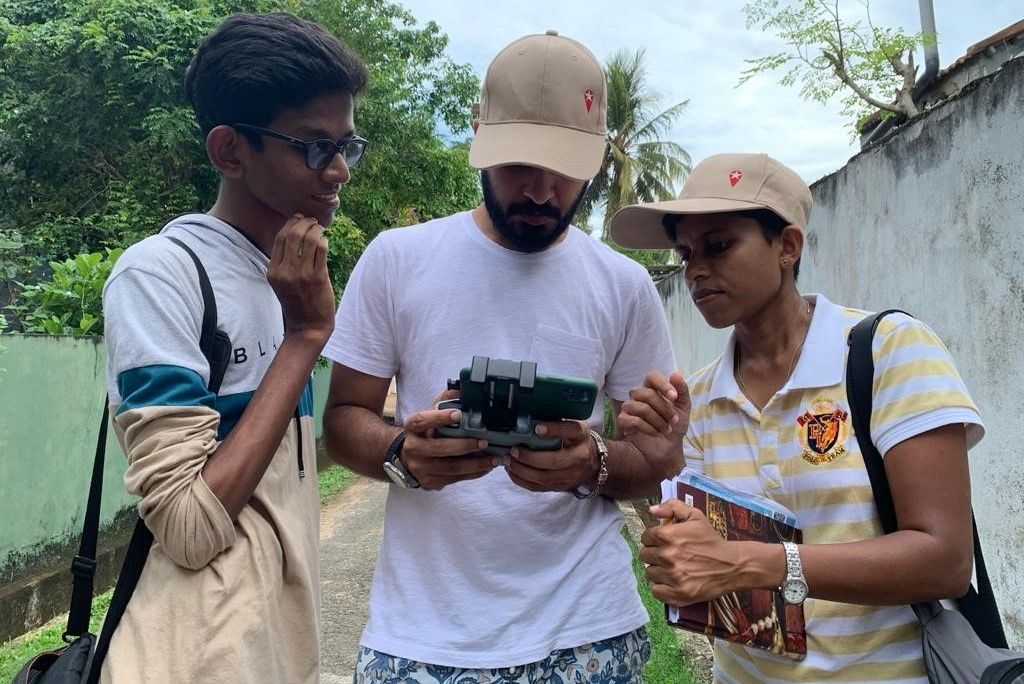
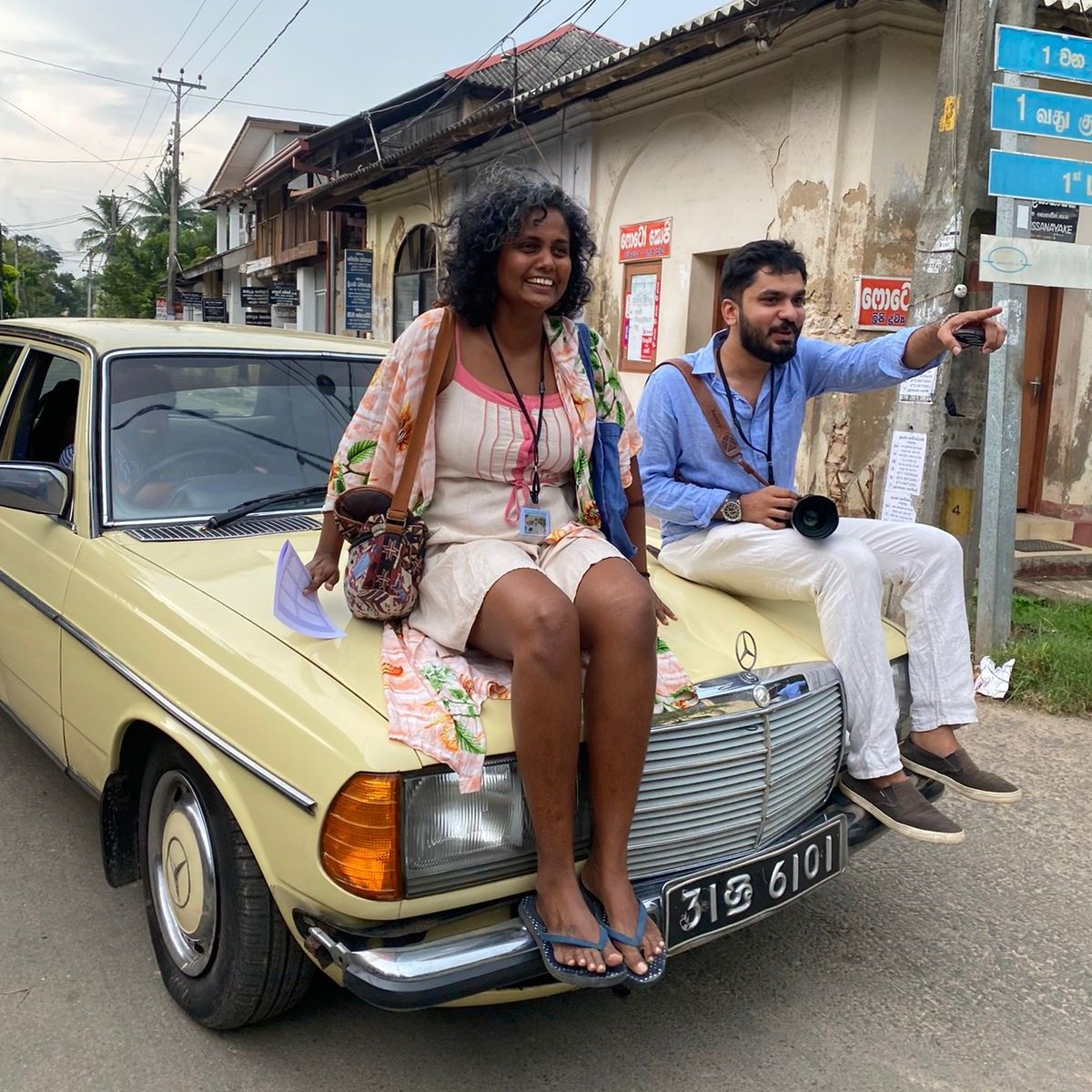
Location
The 2024 field school will take place in the city of Jaffna at Sri Lanka’s Northernmost tip. For many years, Jaffna was off-limits to foreign visitors because of the war. Now, slowly regaining its former glory as a bastion of Hindu art and creative culture, Jaffna is exciting, intriguing and humble. Geographically closer to India than Colombo, this off-the-beaten-path destination is home to one of the greatest Dutch forts in Asia and offers an intimate insight into Tamil culture, Sri Lanka’s distant colonial past and more recent tumultuous history. You will stay in a guesthouse just outside the historic town with many shops, markets, restaurants and cafés and is within easy cycling distance to beaches.
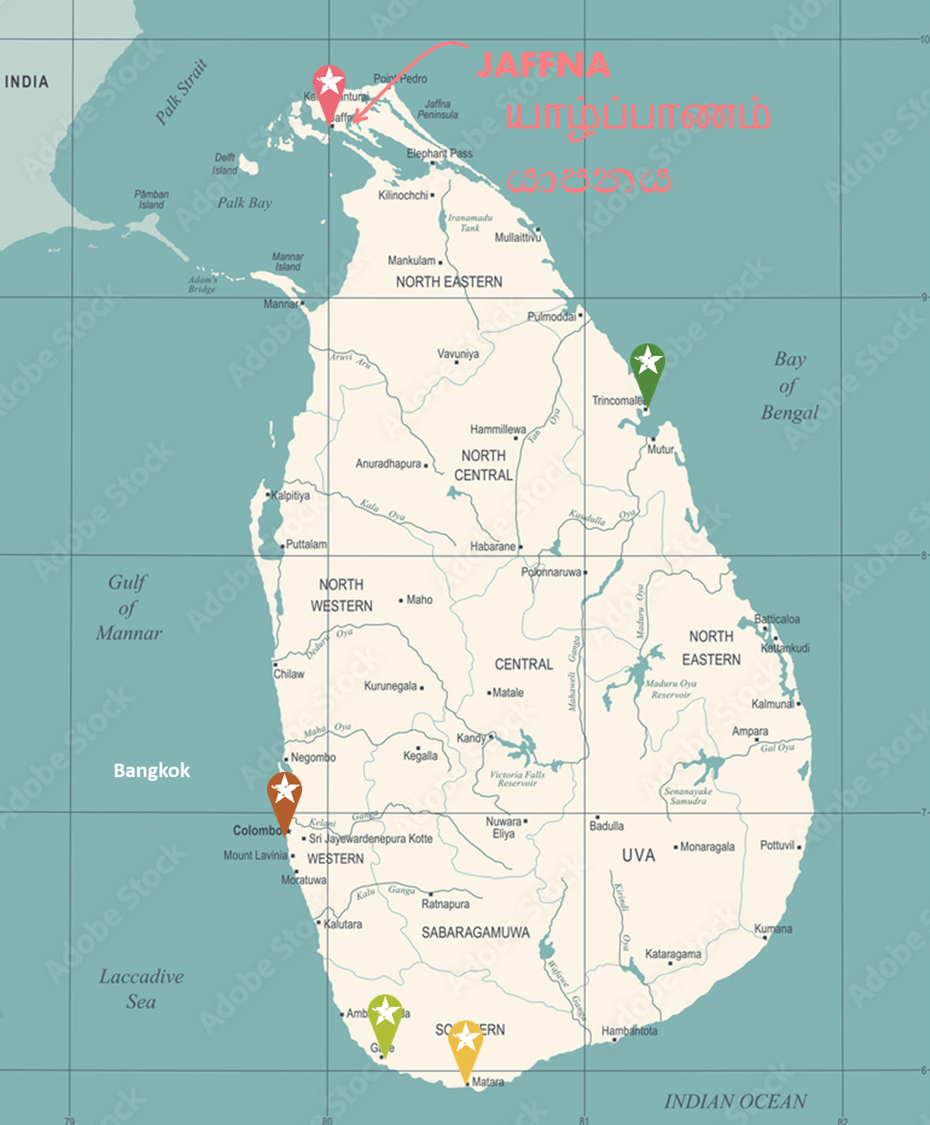




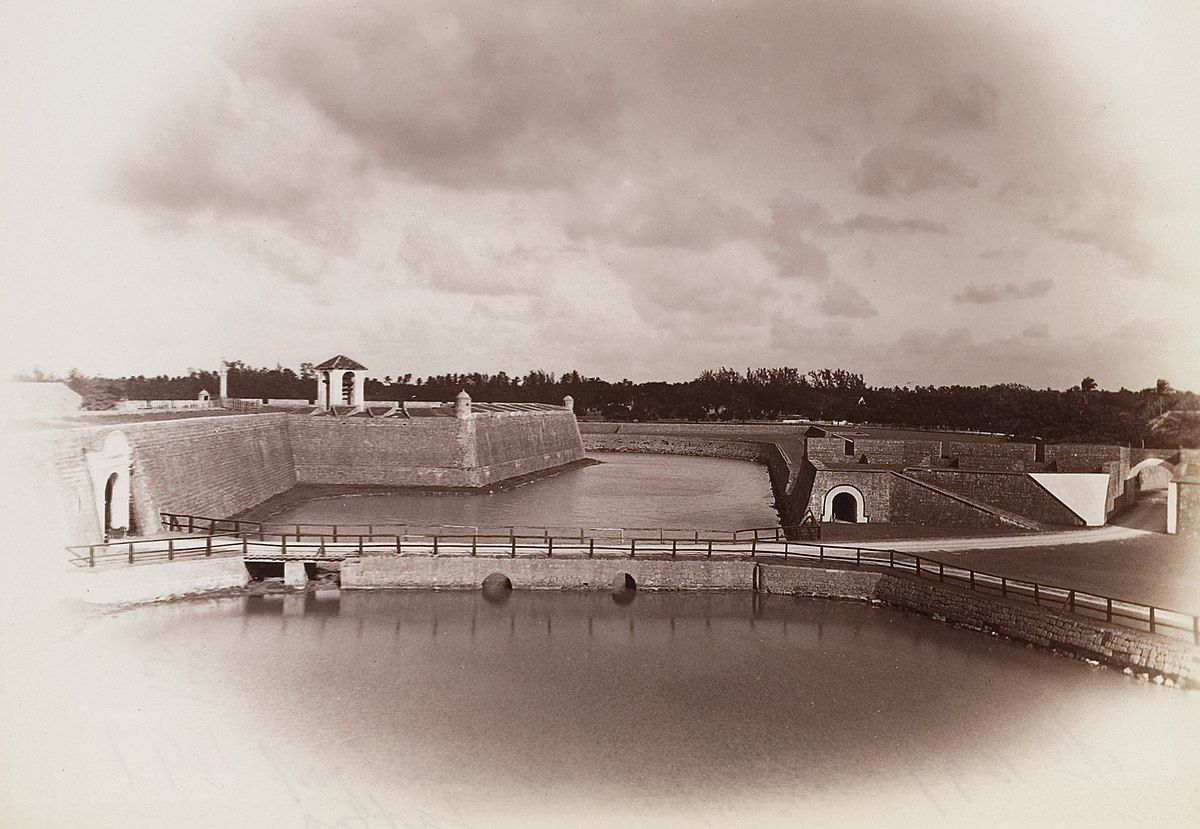
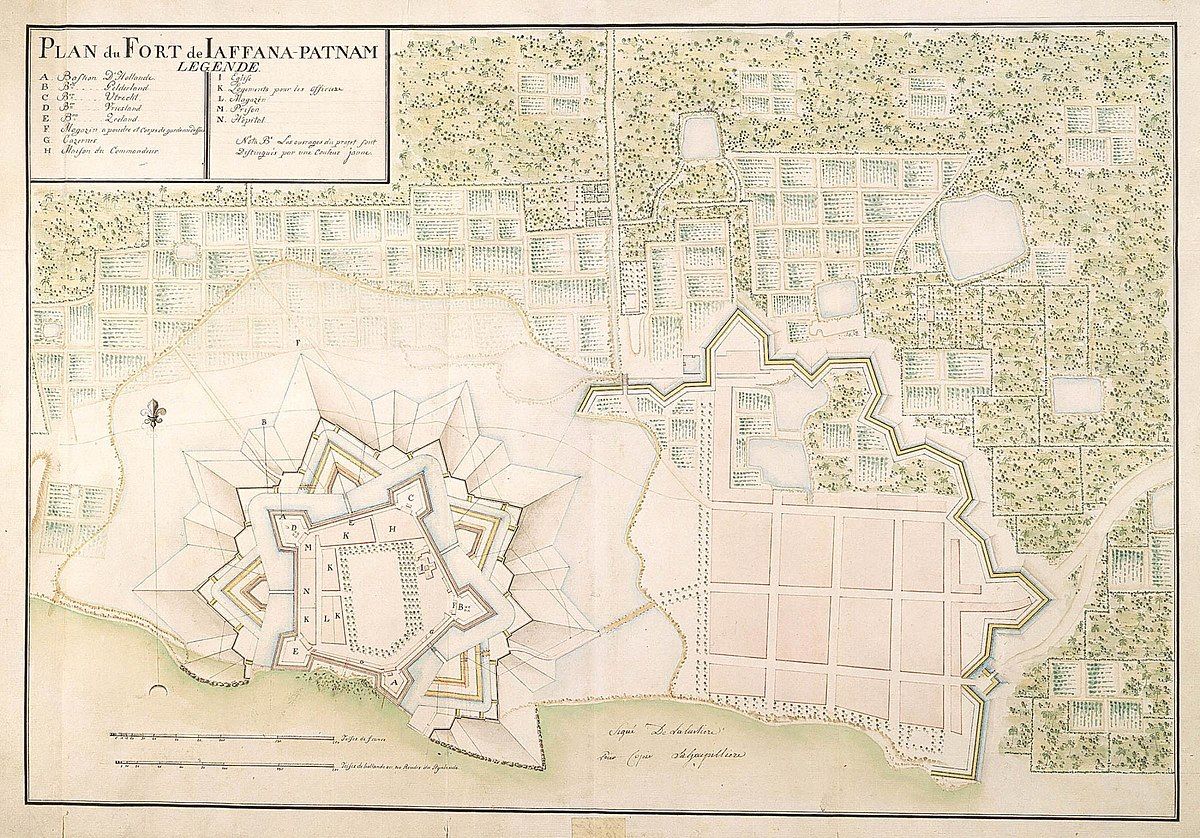
Teaching method
The iDiscover field school employs a problem-solving approach working towards a real and professional product, with exercises that nurture personal, presentation and leadership skills. We mix lectures, brainstorming sessions, site visits and group work to create a hands-on, open-minded and interactive learning journey where it is important to debate, reflect and learn from each other and, of course, to have a lot of fun on the way.
Guided by a 6-step evidence-based methodology, we go from cultural exploration to creative concept to final product in just two weeks.
- In the weekend workshops we combine hands-on exercises and plenary sessions to understand the cultural identity, DNA of the city and to identify and map places that matter to the community; places that locals like to eat, work, play and pray.
- During the rest of the week, you get to work in small groups to independently research the stories behind these places, connect to local residents and shopkeepers and retell the stories you’ve collected in a medium of your choice: photography, film, animation, spoken word or audio.
- The end product is a series of digital story walks and an illustrated neighbourhood map that will be shared in a pop-up exhibition within the community, with other students in the locality and city leadership.
We understand you are also here to discover the beautiful island of Sri Lanka, so the programme provides ample opportunity to explore, and should you wish, you can stay on after the field school.
Dates
- Field School Dates: 27 March - 10 April 2024
- Application Deadline: 30 Nov, 2023
- Course Fee: EUR 800-1,000 (depending on accommodation)
- Tuition Payment Deadline: 31 January, 2024
- Orientation Session: January 2024, Amsterdam (exact date & location TBC)
- Academic Credit: workload is ~112 hours, equivalent to 4EC ( *check with your school/university the requirements to submit the credits as project work, study trip or minor)
Commitment
- Prior to the field school: You are expected to attend the orientation session and there is a list of recommended reading and research assignments
- During the field school: full-time attendance is required
- After the field school: We ask for an additional time investment to create a polished product and write a personal reflection
Note: There is the possibility to extend the learning trajectory and use the field school as a starting point for further fieldwork, internship or even graduation project. If this is something you’re interested in, please mention it in your application letter.
I came here to learn about photography - but I gained a lot more. I learned about interesting structures and stories buried here. We should conserve them for the future.
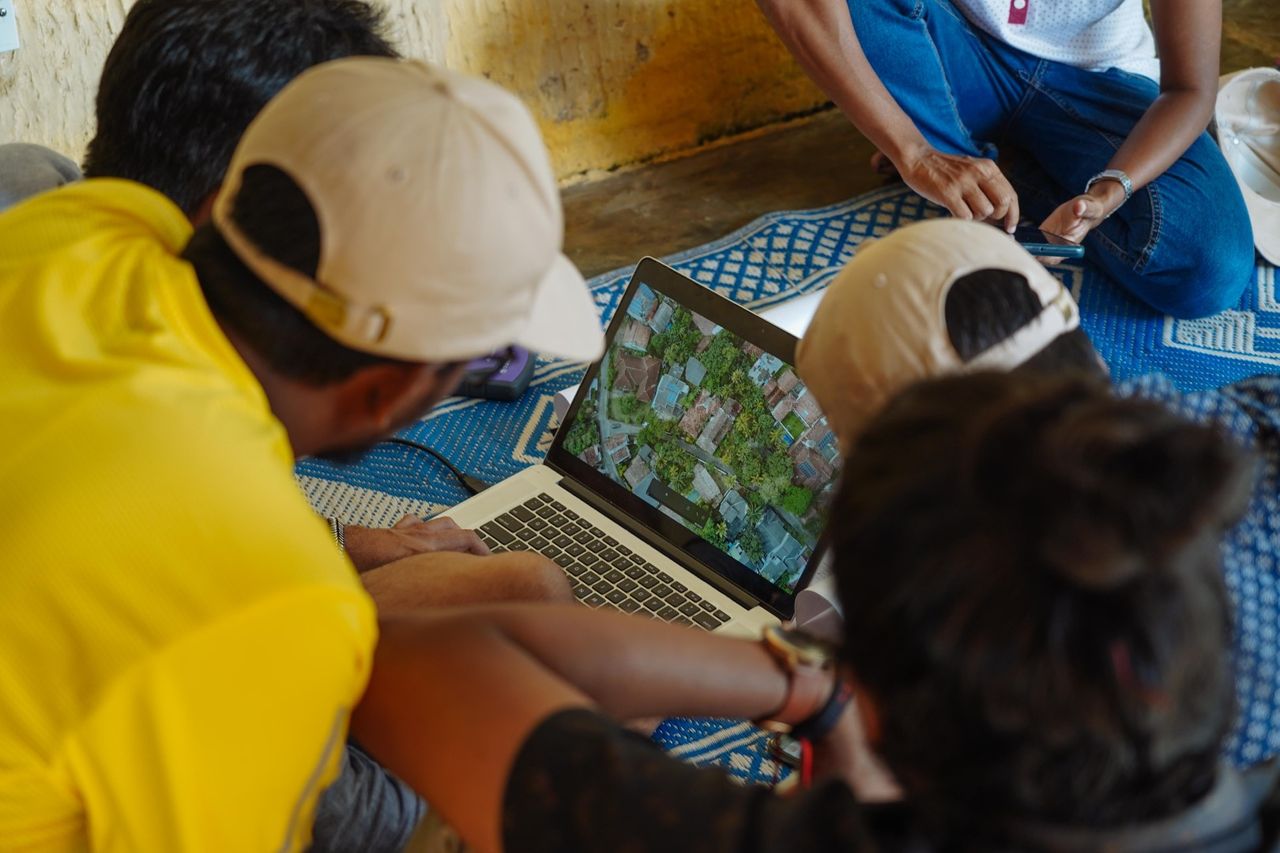
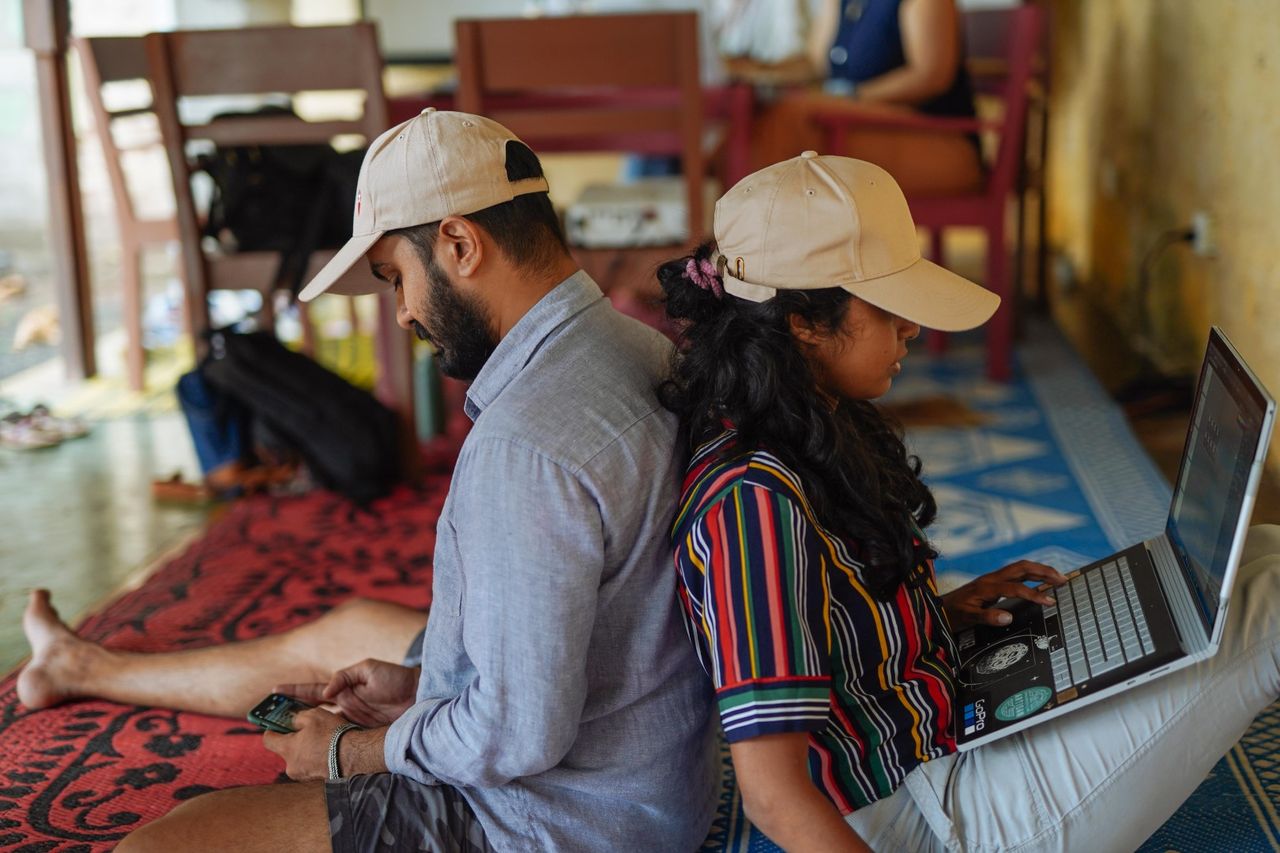
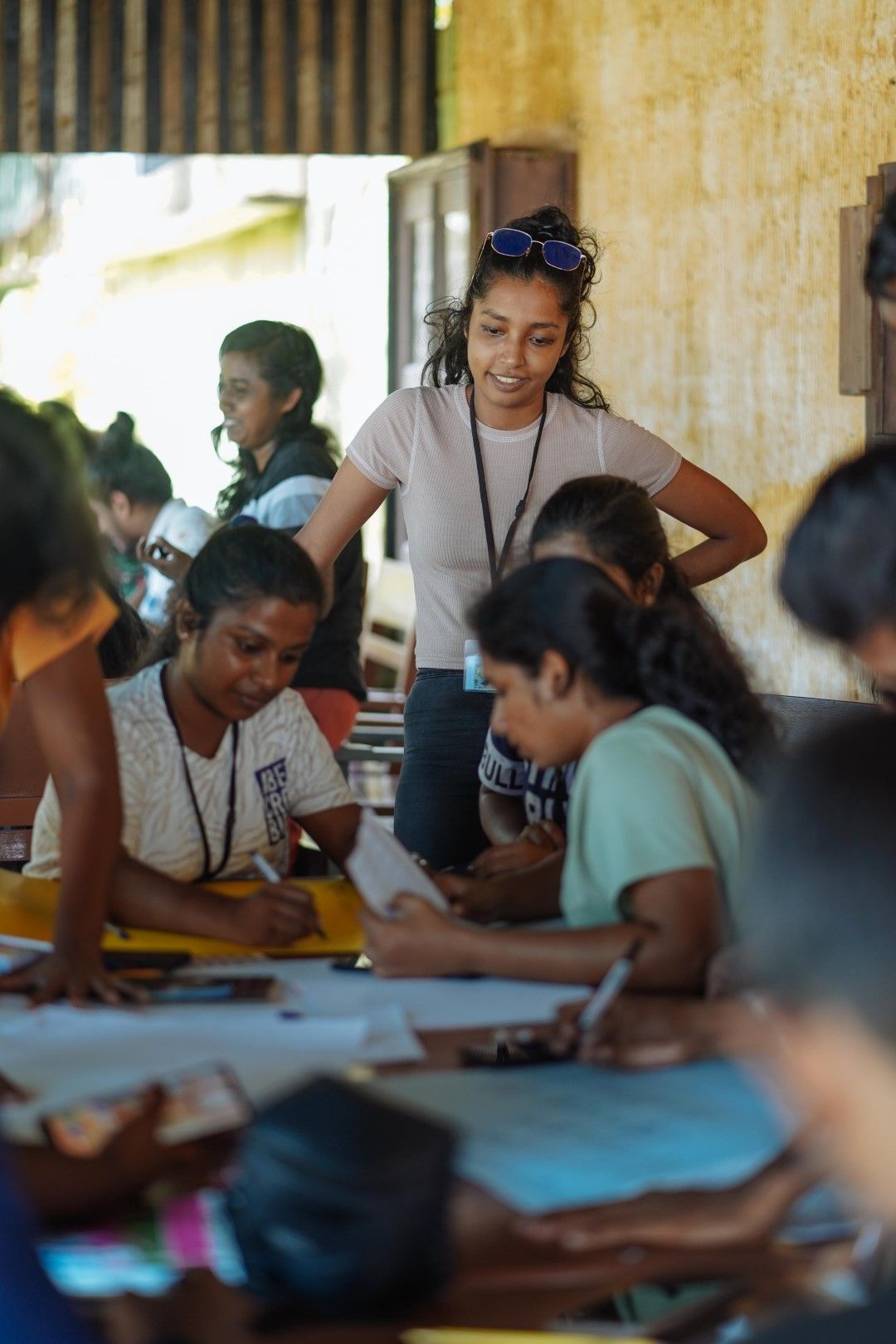
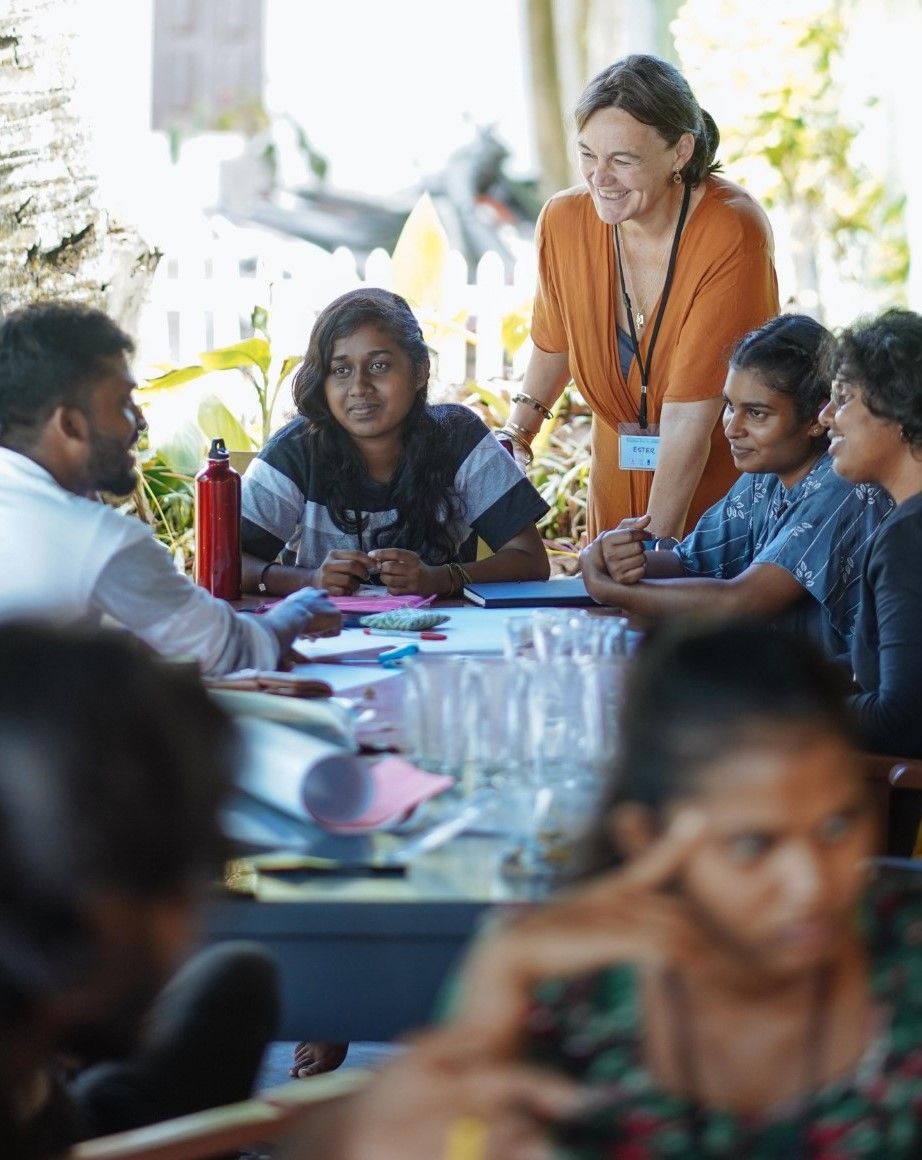
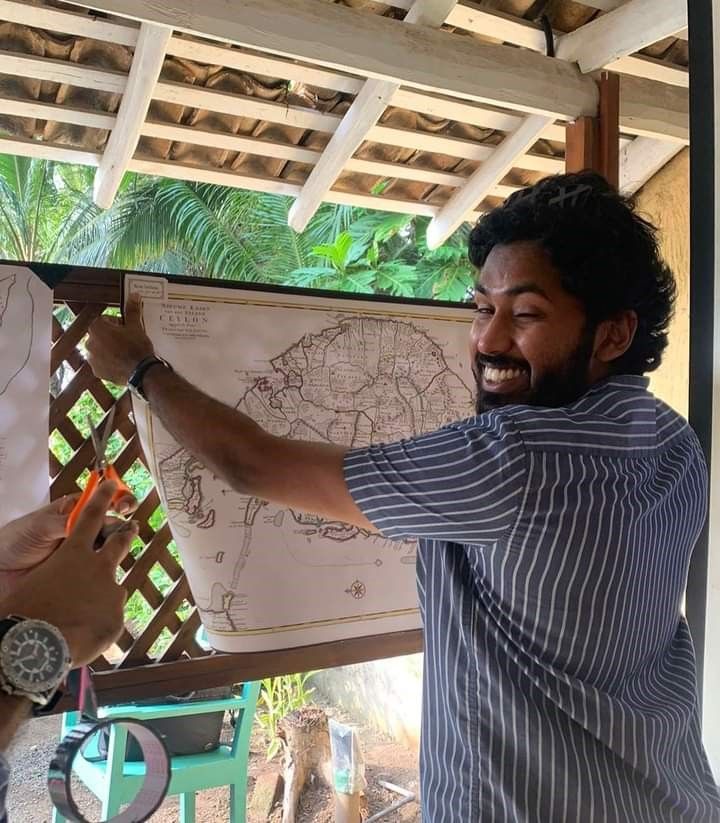
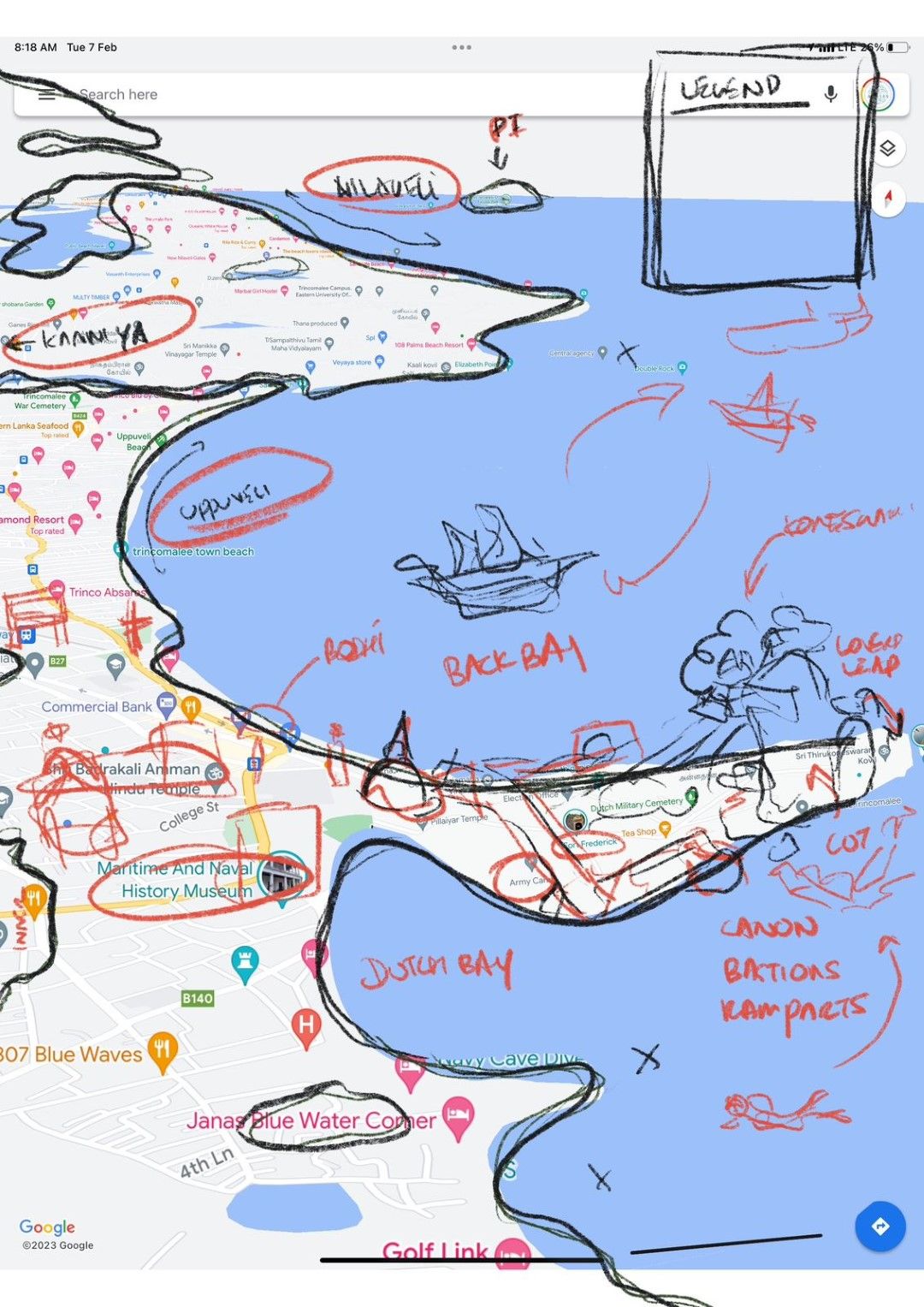

Entry requirements
The Field School is open for 30 selected students only – 20 from Sri Lanka and 10 from the Netherlands. We are now recruiting 10 Dutch students. To be considered, you will have to meet the following requirements:
- Student in cultural heritage, museum or media studies, tourism, architecture, planning, geography, history or a related field at a Dutch University or Higher Educational Institute
- Good working knowledge of English
- A complete online application. Includes an application letter (400 words/1 A4) explaining your ambitions and motivation to participate in the field school.
All of us, Tamil and Sinhala got to spend time together. We ate together, roamed around together, and got to really get to know each of our histories.
Programme
Wed 27 Mar - Arrival Colombo / Evening Opening Reception at Netherlands Embassy
Thurs 28 Mar - Site visits to Pettah and Colombo Fort
Fri 29 Mar - Travel to Jaffna by train
Sat-Sun 30-31 Mar - Full-day workshop with Sri Lankan students
Mon-Fri 1-5 April - Content creation with daily feedback sessions
Sat 6 April - Full-day workshop with Sri Lankan students
Sun 7 April - Project exhibition & stakeholder presentation
Mon 8 April - Follow-up with key stakeholders in Jaffna
Tue 9 April - Travel back to Colombo by train
Wed 10 April - De-briefing session at Netherlands Embassy
Thurs 11 April - Early morning departure Colombo
Fee
Course fee EUR 800 (discounted price thanks to sponsorship from the Netherlands Embassy). The program fee includes:
- Tuition fee: workshops, guest lectures, feedback sessions & site visits
- Live briefing session one month prior to departure in Amsterdam
- Lunch & teatime during full workshop days
- Welcome package incl. local SIM card & iDiscover cap
- Syllabus & course materials
- Welcome reception, official closing ceremony & farewell dinner
- Project exhibition
- Accommodation with breakfast in Colombo and Jaffna (shared room basis)
- Transportation Colombo – Jaffna
- Airport pick-up (optional)
At your own cost
- Travel cost to Sri Lanka
- Visa application
- Travel Insurance
- Local food & transport
- Personal activities
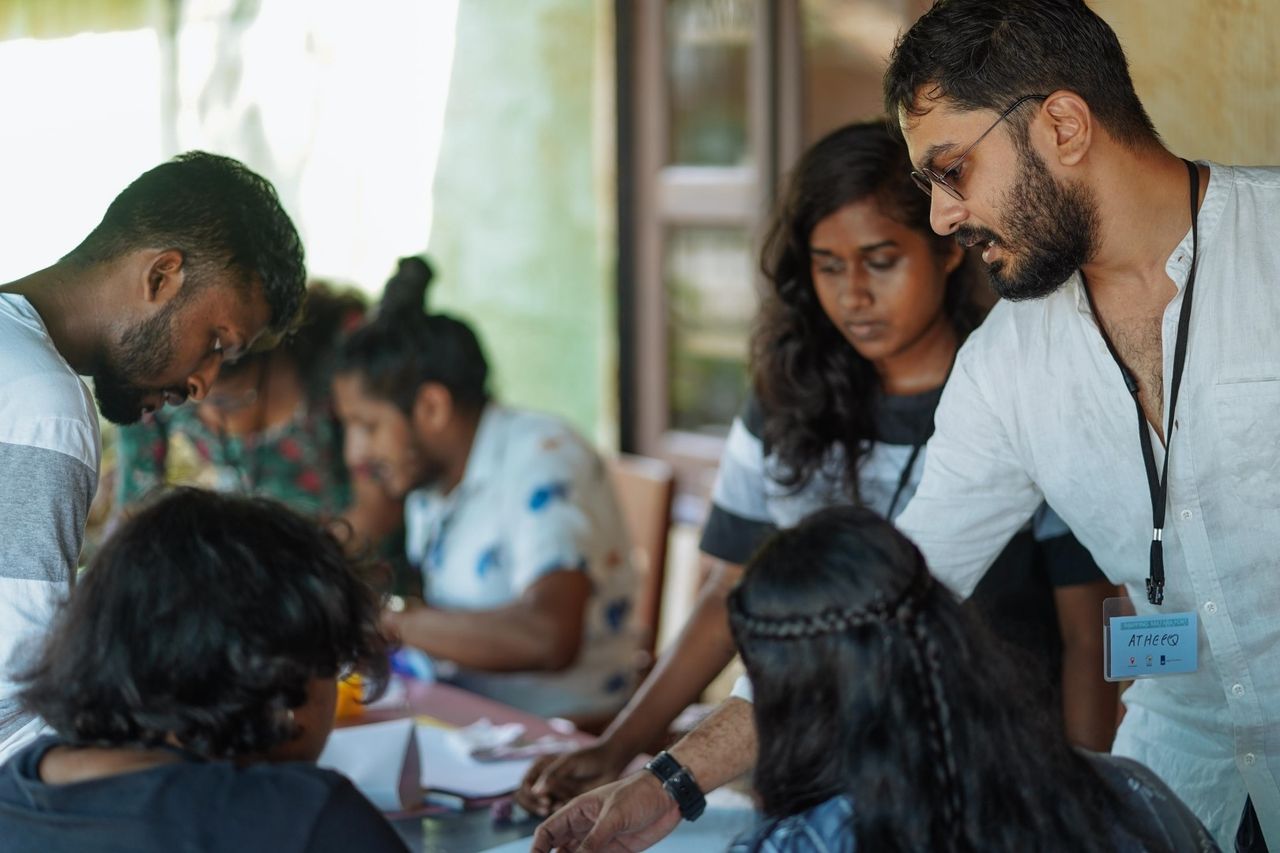
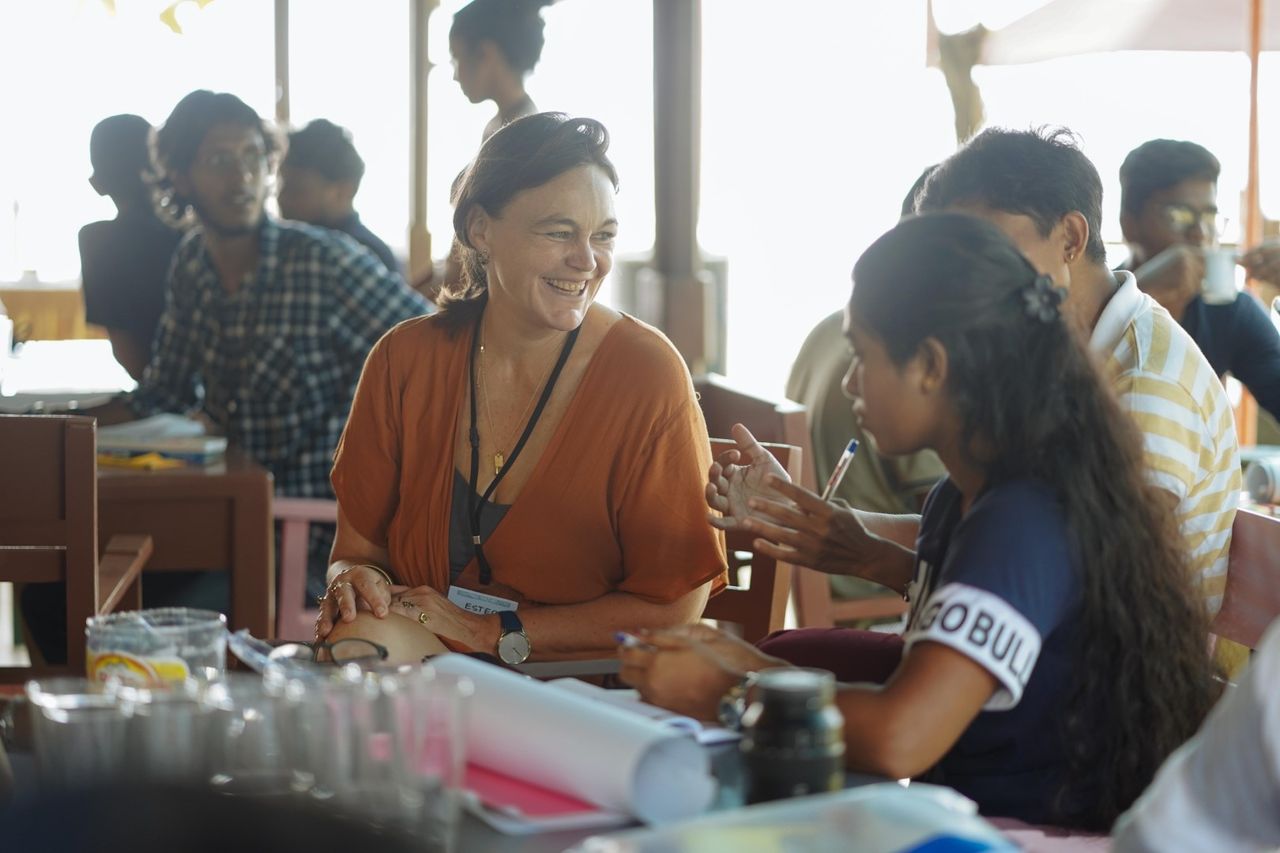
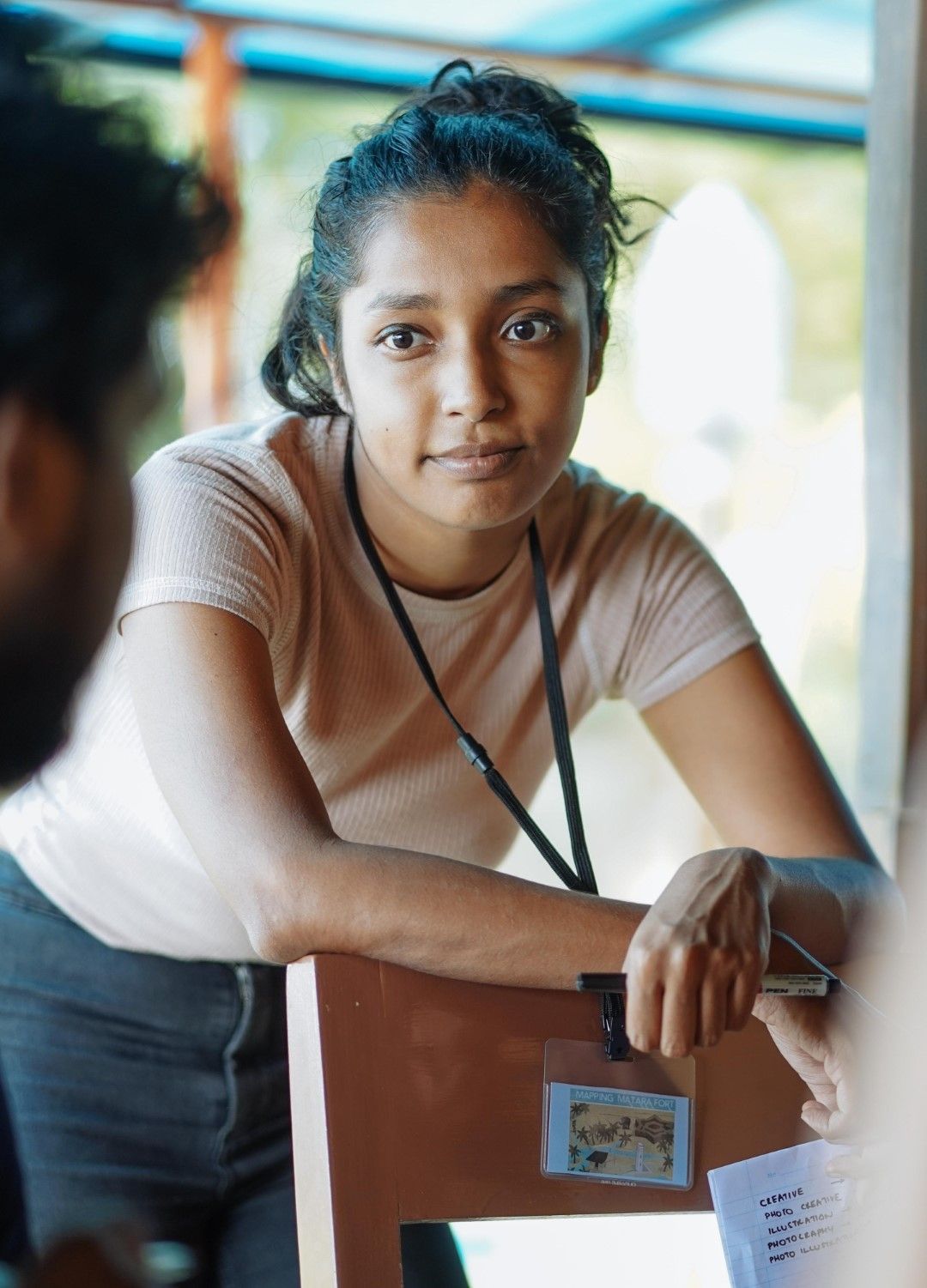
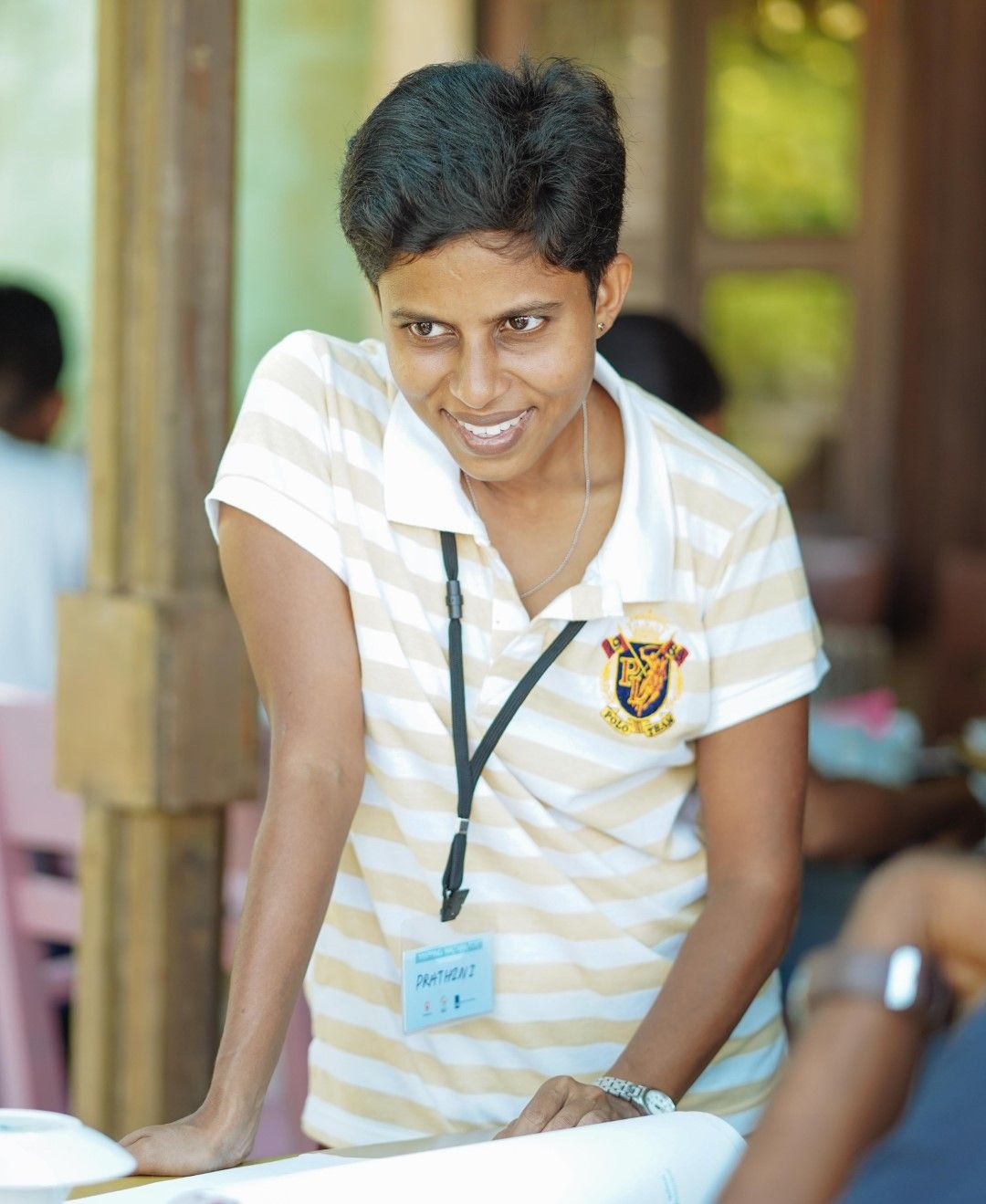
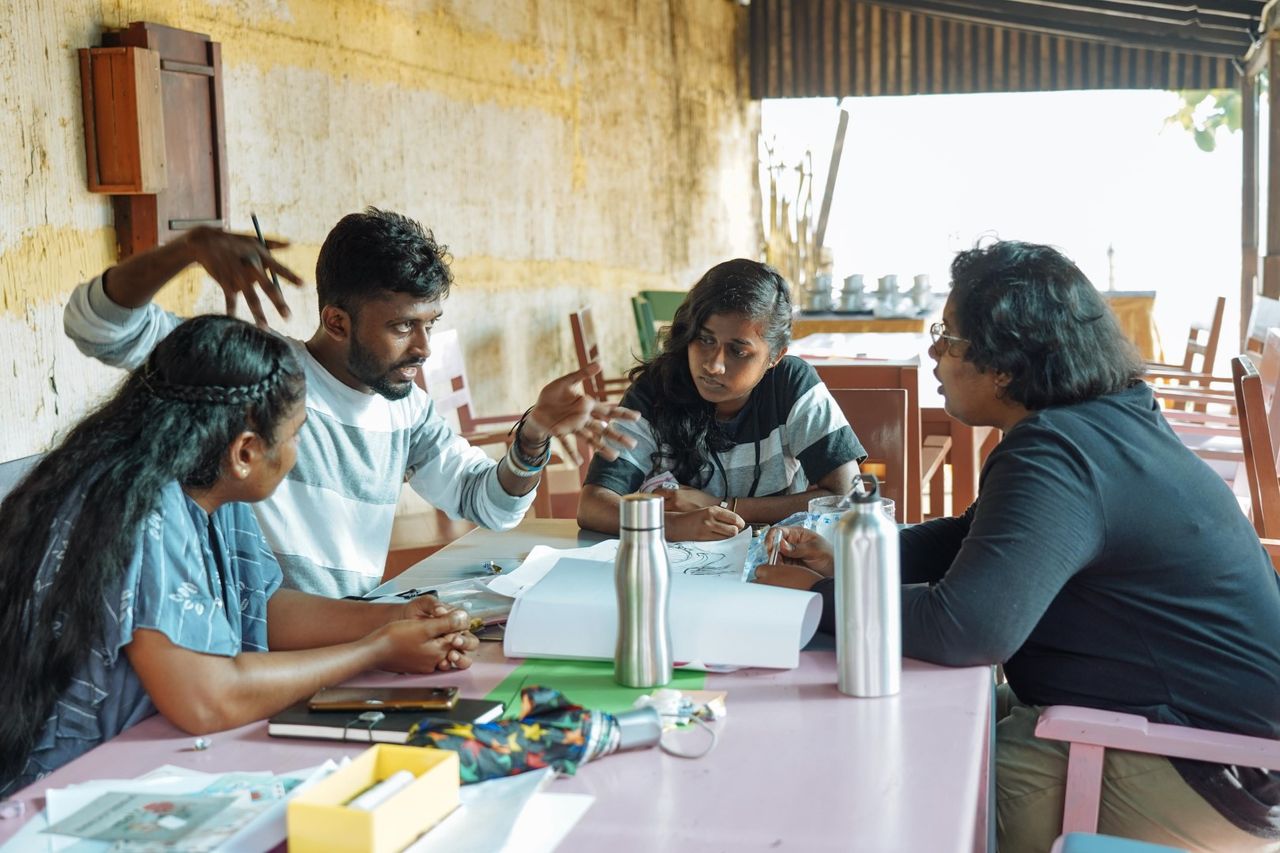
Deliverables
Following the six different steps of the iDiscover mapping process and mentored by experienced professionals, students will work in small teams to produce:
- Location-specific stories for selected Points of Interest (POI’s) in the locality of Jaffna published on the iDiscover platform.
- You can choose from two forms of narrative: a ‘place story’ (in-depth narration for one specific POI) or a ‘story walk’ (short narratives of 10-20 POI’s pieced together as a walking or cycling itinerary).
- Each narrative comprises 400-1,000 words (story walk) or 1,000-3,000 words (place story) and should be complemented with visuals (photography, illustration, sketches, GIF etc.) and/or audio-visual media (sound clips, short videos, animation etc.)
- Poster or creative display that tells the story of your chosen POI(s) at the occasion of a pop-up exhibition in Jaffna at the end of the field school. For the display, you can choose your own medium, whether it is a video, an art installation, a collection of memorabilia or even a performance.
- Finally, you will be asked individually to submit a written reflection guided by a set of questions that relate to the underlying topics of shared heritage and cultural diversity. This exercise will take place before and after the field school.
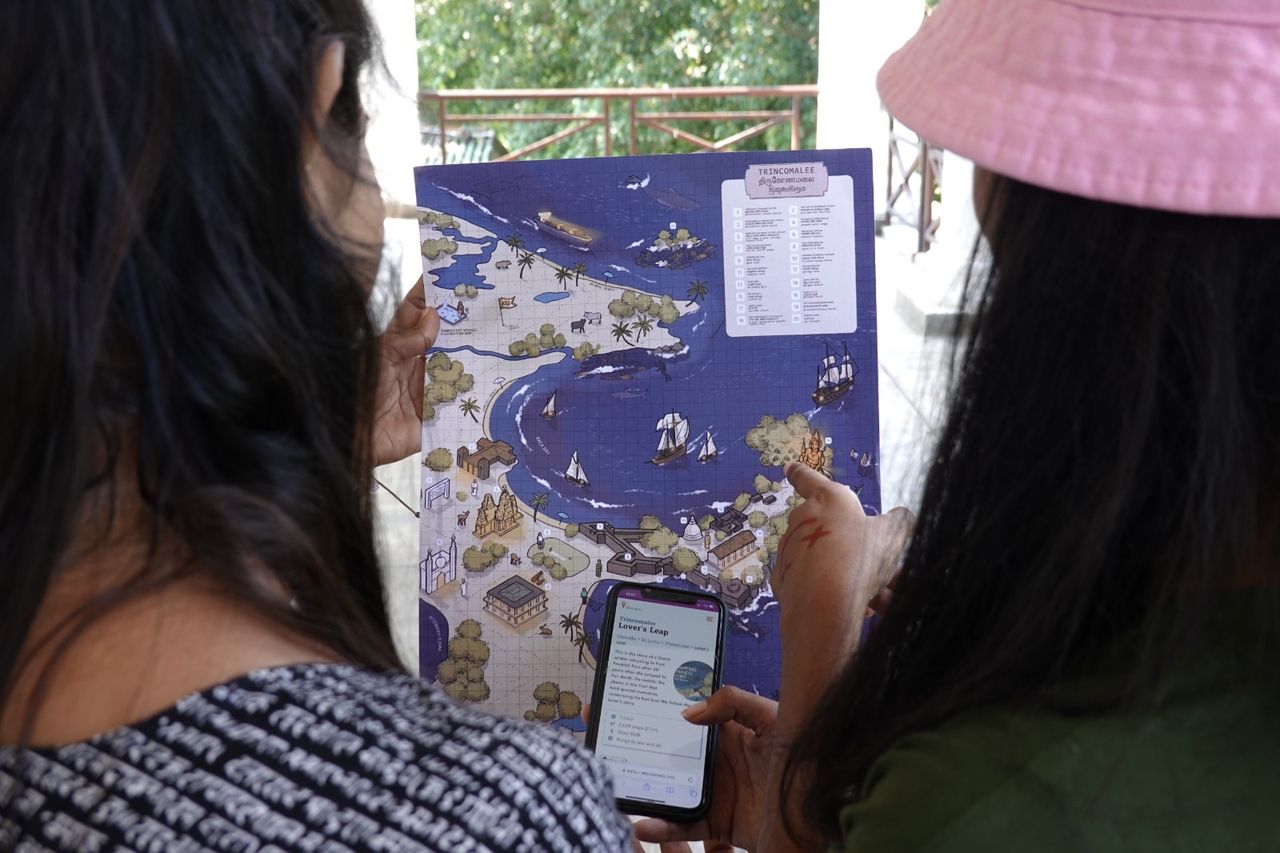
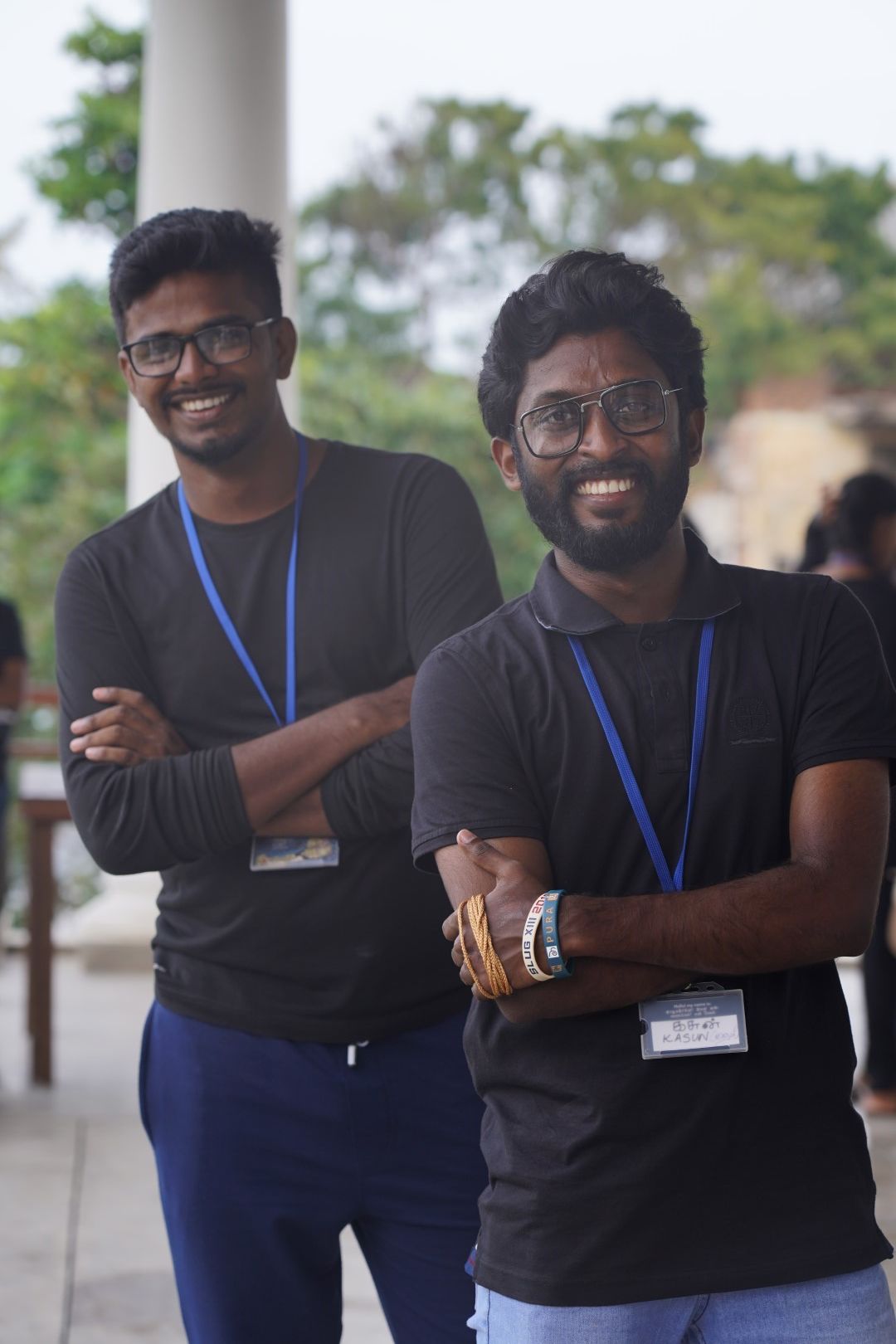
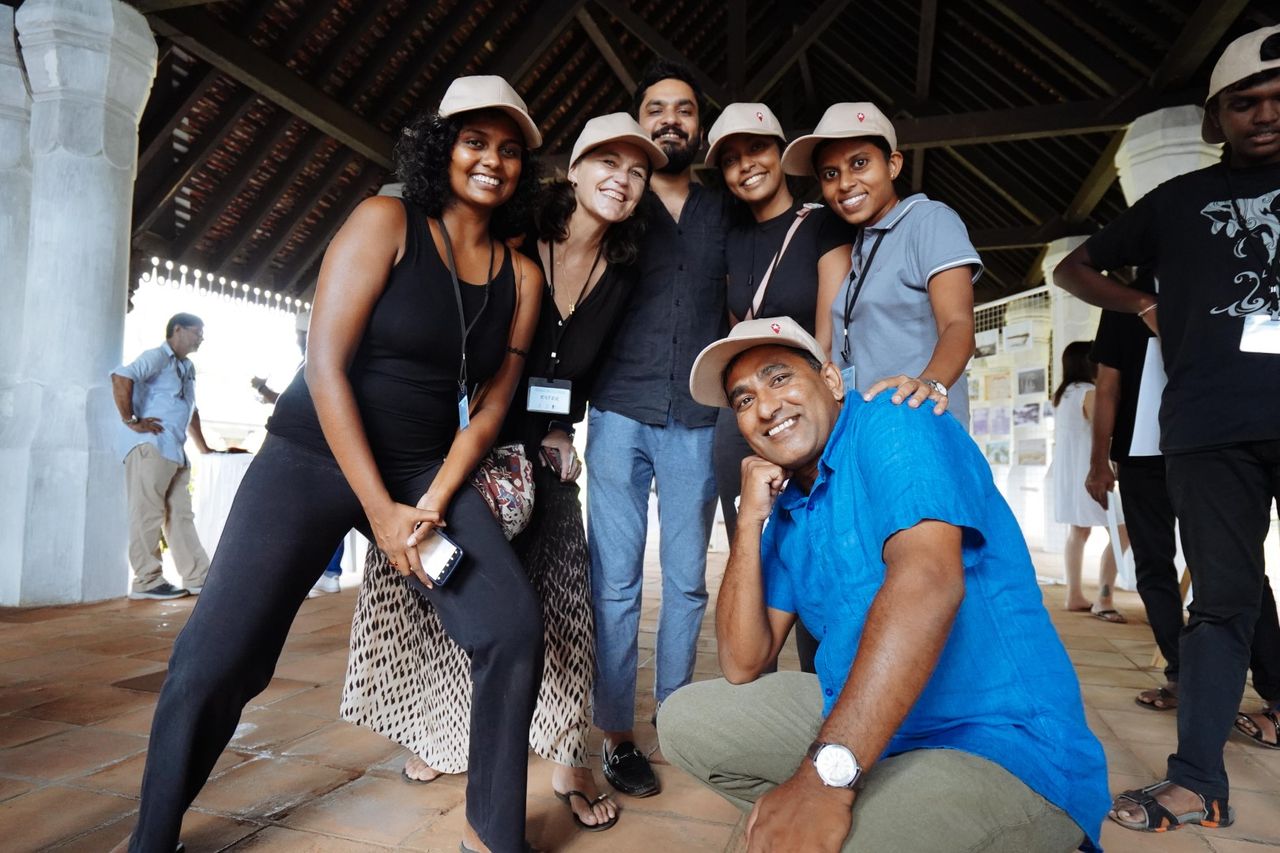
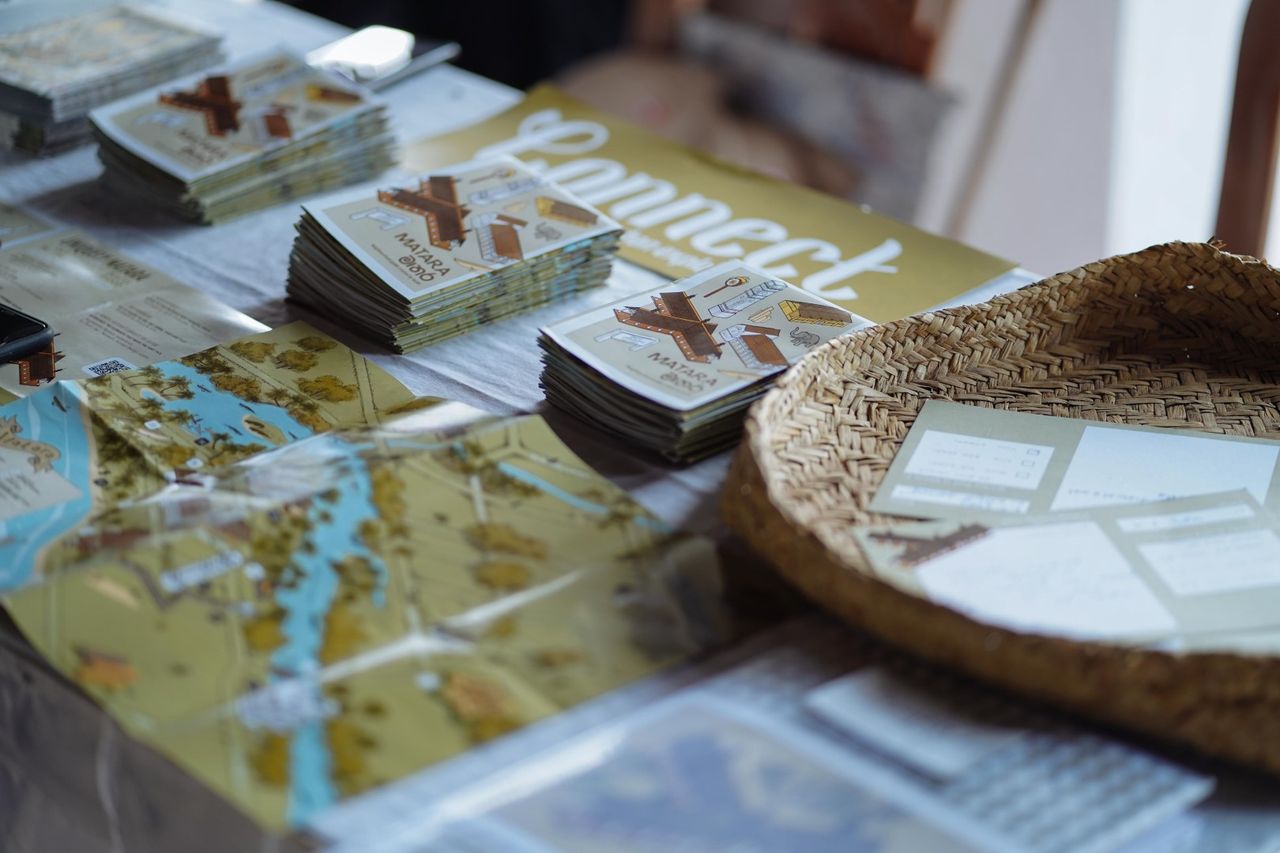


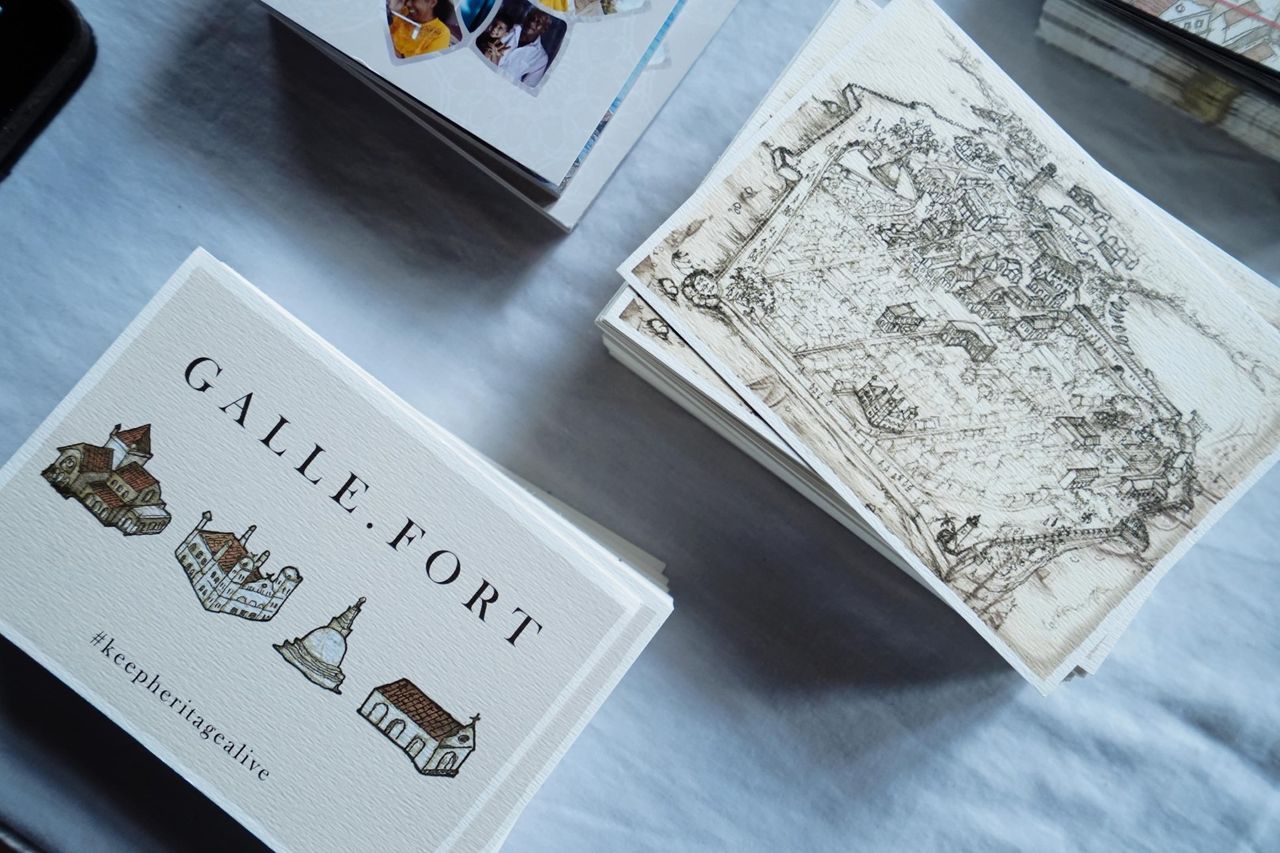

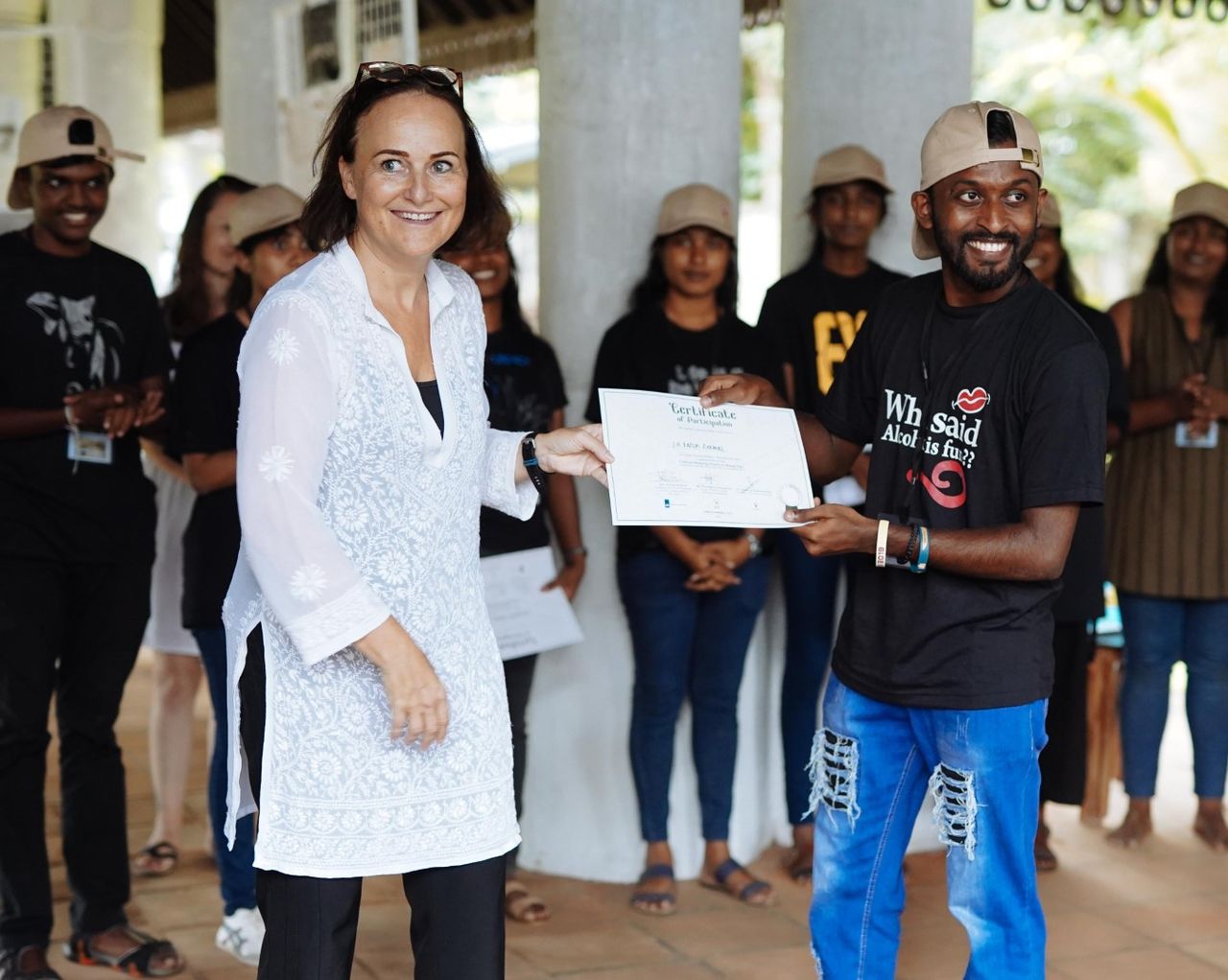

What to bring?
You are expected to bring their laptops and tablets to enable them to work remotely and your favourite editing software for processing film, photos or other media. You also need yourphone to make audio recordings and take photographs during interviews. If youhave specific equipment you like to use, such as professional cameras or drones you can bring it, but this is optional. Our field school is designed to produce results without high-tech tools. Stationery, basic drawing tools, art supplies, clipboards etc. are available on-site.
Team
The iDiscover team combines different creative and cultural backgrounds so we can tailor your learning journey and you have an opportunity to polish the skills you need.
Lead Facilitator - Ester van Steekelenburg

Ester is the brains behind iDiscover. She packs a PhD and 25 years of professional experience in her backpack but loves exploring as much as she did in her 20s. The Sri Lanka field schools are an annual treat; a chance to dive deep into another culture and an opportunity to share her passion for preserving the planet’s heritage, especially in places where it is under threat.
Find Ester on @LinkedIn
Creative writing - Nadeesha Paulis
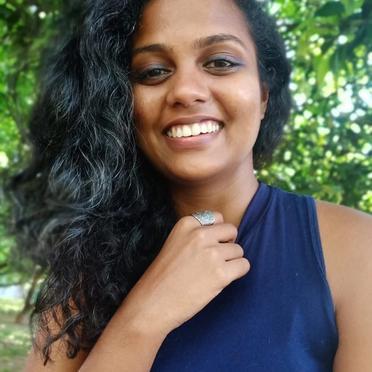
A weaver of words and a lover of getting lost in a jungle or in her own mind, Nadeesha believes that genuine connections within us, being one with nature and dance can heal everyone. Nadeesha not only taught the students how to play with words to best get a message across, she was also the group's spiritual leader and facilitator of important conversations.
Find Nadeesha @nadeepaws
Photography, Film & Drone - Atheeq Ifthikar
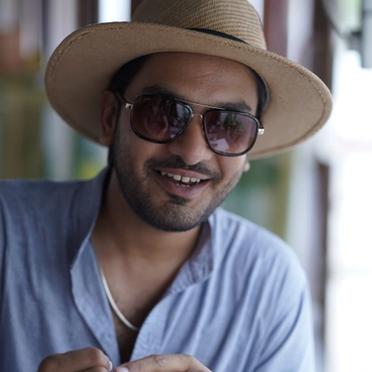
A black sheep who broke a family rhythm of five generations, Atheeq found his own in deciphering life through a ‘pause-click-resume’ state which uncovered more to life than he could ever imagine. In the Trinco workshop, Atheeq was the go-to person for tips and tricks on photography and filmmaking. That is if he was not out in town on his motorbike to find the best spots to fly the drone.
Find Atheeq @CeylonSoul
Illustration & Graphic Design - Devni Jay
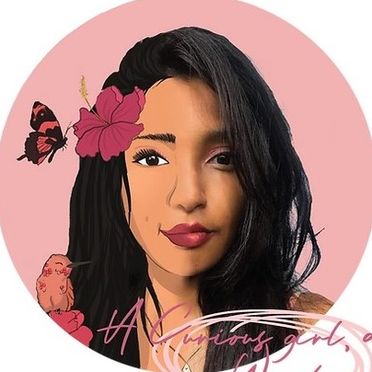
A chaotic-good, ambivert with wild hands that give life and colour to the imagination, Devni is a curious seeker who tries to understand boundaries so she can break them. Devni coached the students in illustration and graphic design skills and also dived deep into the underwater world to draw the many tales of Trinco town on a new map.
Find Devni @Nomadic Artisan
Historic Research & Local Logistics - Prathini
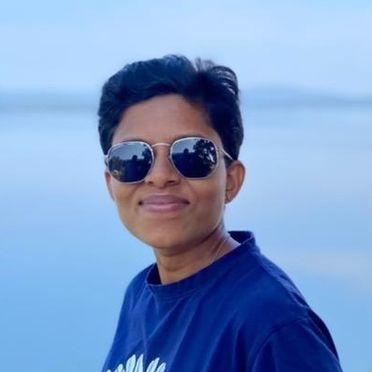
She walks, talks and connects with her people in a way that makes it her superpower. Prathini’s curiosity for history and mystery makes her research, knowledge and love for travel a powerful asset for tourism in Sri Lanka. Prathini was the oil in the workshop machinery. She dealt with the logistics, sourced local intelligence and made connections in the community. She made sure that everything ran smoothly, and as a quiet confidante for the students, she was also a beacon of calm in the sometimes chaotic multicultural cocktail.
Find Prathini @prathini77
FAQ
What is the application procedure?
- This open call for applicants is advertised through the iDiscover academic network in the Netherlands that includes Breda University of Applied Sciences (Tourism Management, Tactical Urbanism) Amsterdam Free University (Heritage Studies), Amsterdam University (Urban Planning) and the Reinwardt Academy (Heritage & Museum Studies). Yet, we also welcome students from other institutes to apply! We strive to compose a group of 10 highly motivated students diverse in field of study, interest, skill set and gender.
- Applications close November 30, 2023. We will get back to each applicant in the first week of December. Each selected participant will then receive a more detailed briefing document with logistical details, accommodation options, flight recommendations and required reading.
- In January 2024 (date/time tbc), there will be an orientation session in Amsterdam for all 10 selected participants. The tuition fee payment deadline is January 31st, 2024.
Do I need a visum to enter Sri Lanka?
You will need a visa (Electronic Travel Authorization) to visit Sri Lanka. Make sure you get one in advance. You won’t get deported on arrival if you don’t, but you may spend uncomfortable hours waiting at the airport. It is an easy online application process, a 30-day tourist ETA visa costs US$50.
Do I need a travel insurance?
Travel insurance is compulsory to enter the field school. Please make sure that you carry your insurance card when you arrive in Sri Lanka, so we know who to contact in case of medical emergencies. We will provide assistance where we can, but the field school does not provide any insurance for participants.
Is Jaffna a safe place to visit?
Sri Lanka is a very safe country to travel around. The country has been through a tumultuous few decades during the bitter civil war between the Tamils and Sinhalese but has re-emerged from the war. People are friendly and helpful, Sri Lanka has a lower crime rate compared to many other countries in the region and it is safe for female travellers. In recent years, Sri Lanka has been in the news due to civil unrest and protests over the economic and political situation, but, from personal experience, we can assure you that this has subsided; the streets are calm, and the Sri Lankans are once again welcoming visitors with open arms.
The sentiment in the North is upbeat, and we feel that this is the time to visit this unexplored region. The war is over and investment is flooding in; new hotels and restaurants pop up everywhere, and the new train is bringing visitors further north than they have ventured in decades. There’s still a strong military and police presence throughout the region, but this doesn’t affect tourists in any way. Still, use your common sense.
Want to know more? Read this blog about Jaffna and other Sri Lanka travel destinations from the common wanderer.
Is there a dress code?
We have no official dress code. Yet, as a way of showing respect to the local community, we encourage you to wear appropriate clothing that covers your legs and shoulders. Sandals or flip flops come in handy, as many religious places require barefoot entrance. Please also pack something suitable for formal occasions as well as an all-black outfit for the exhibition.
Do I need to bring my own laptop?
Yes, will need to bring your private laptop to work independently on your project. Make sure your favourite editing software is installed and ready to run.
Want to know more?
Read these blogs about the 2022 Field School in Matara and the 2023 Field School in Trincomalee.
Anything else? Give us a shout!
